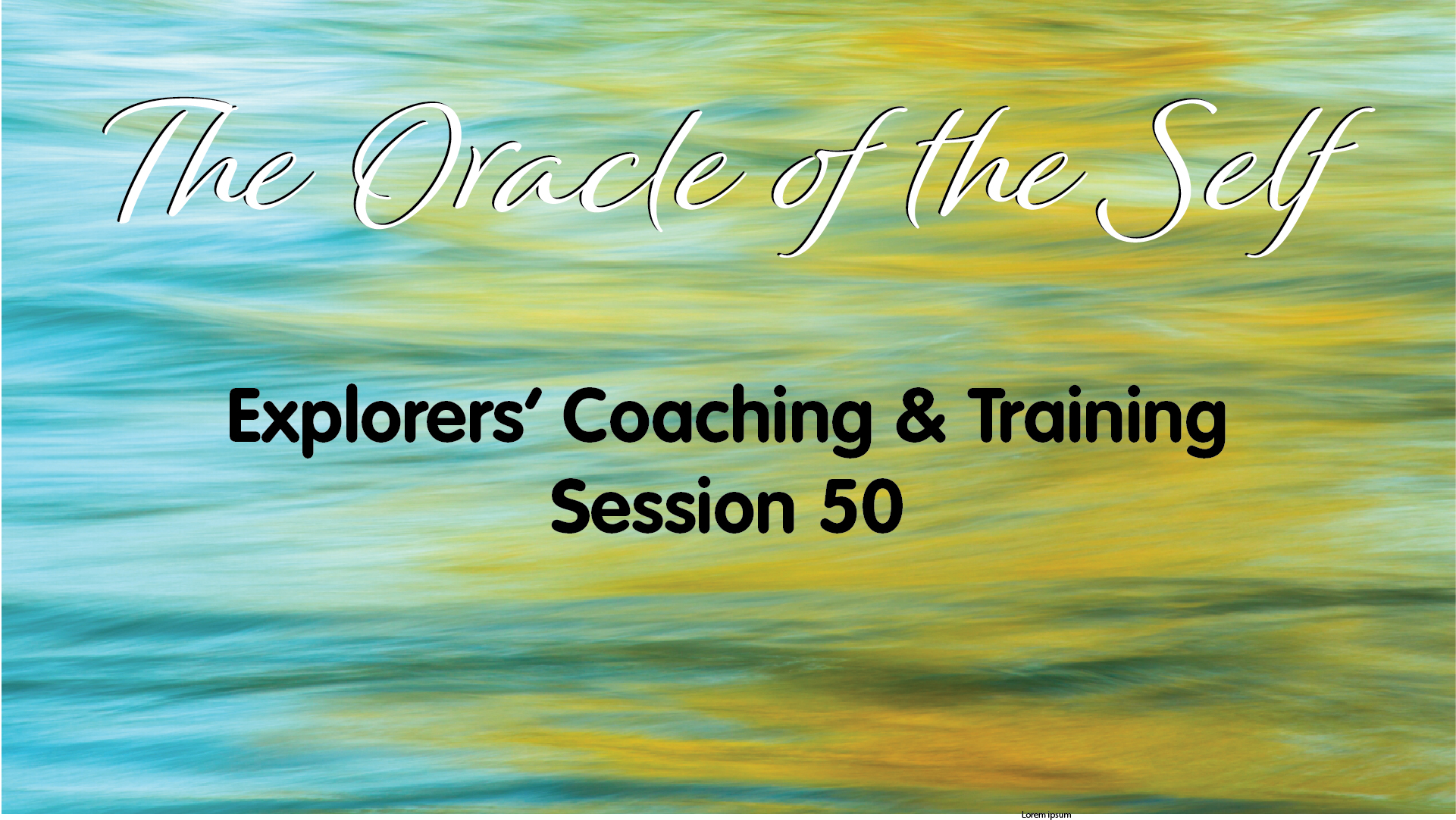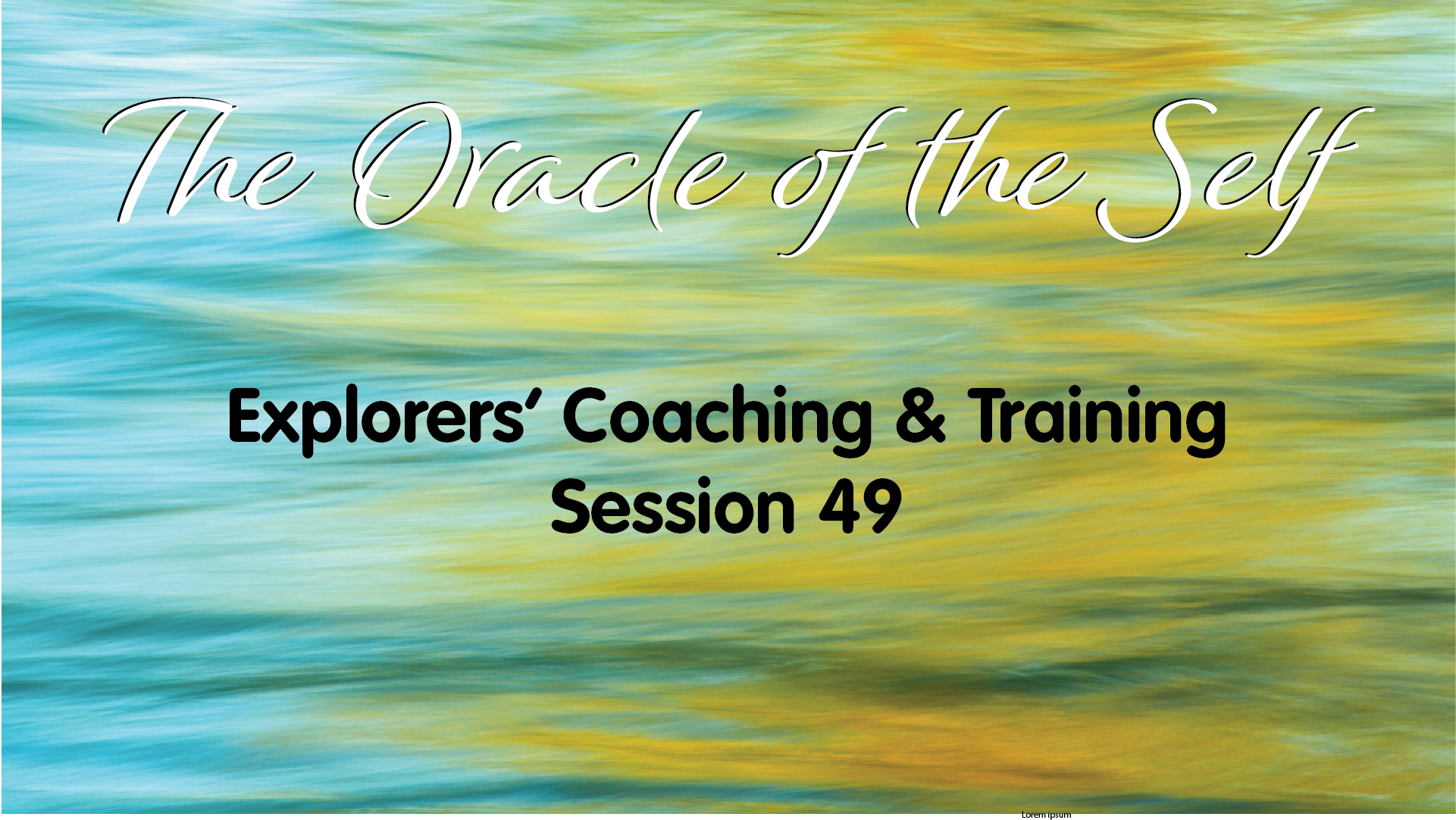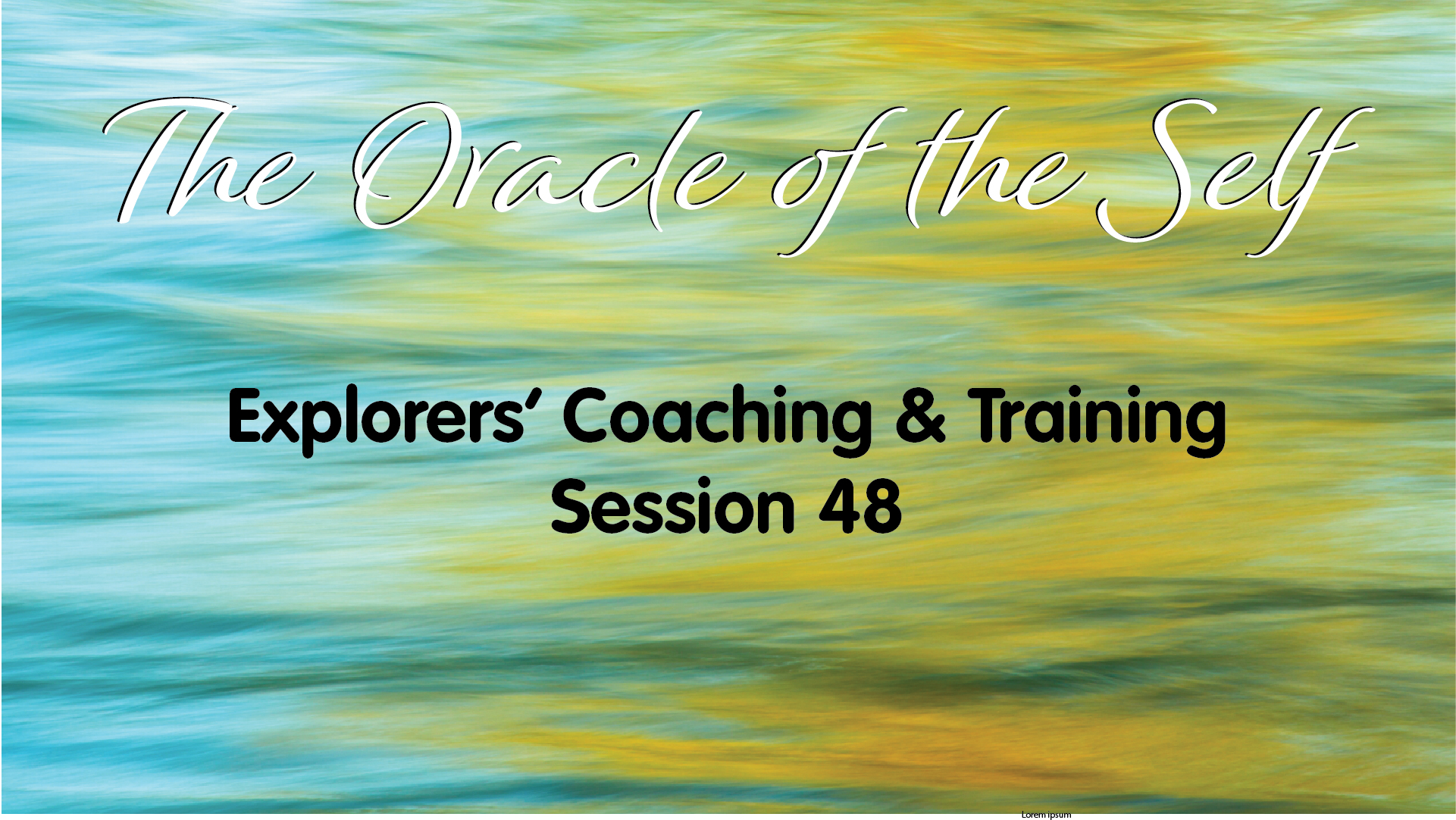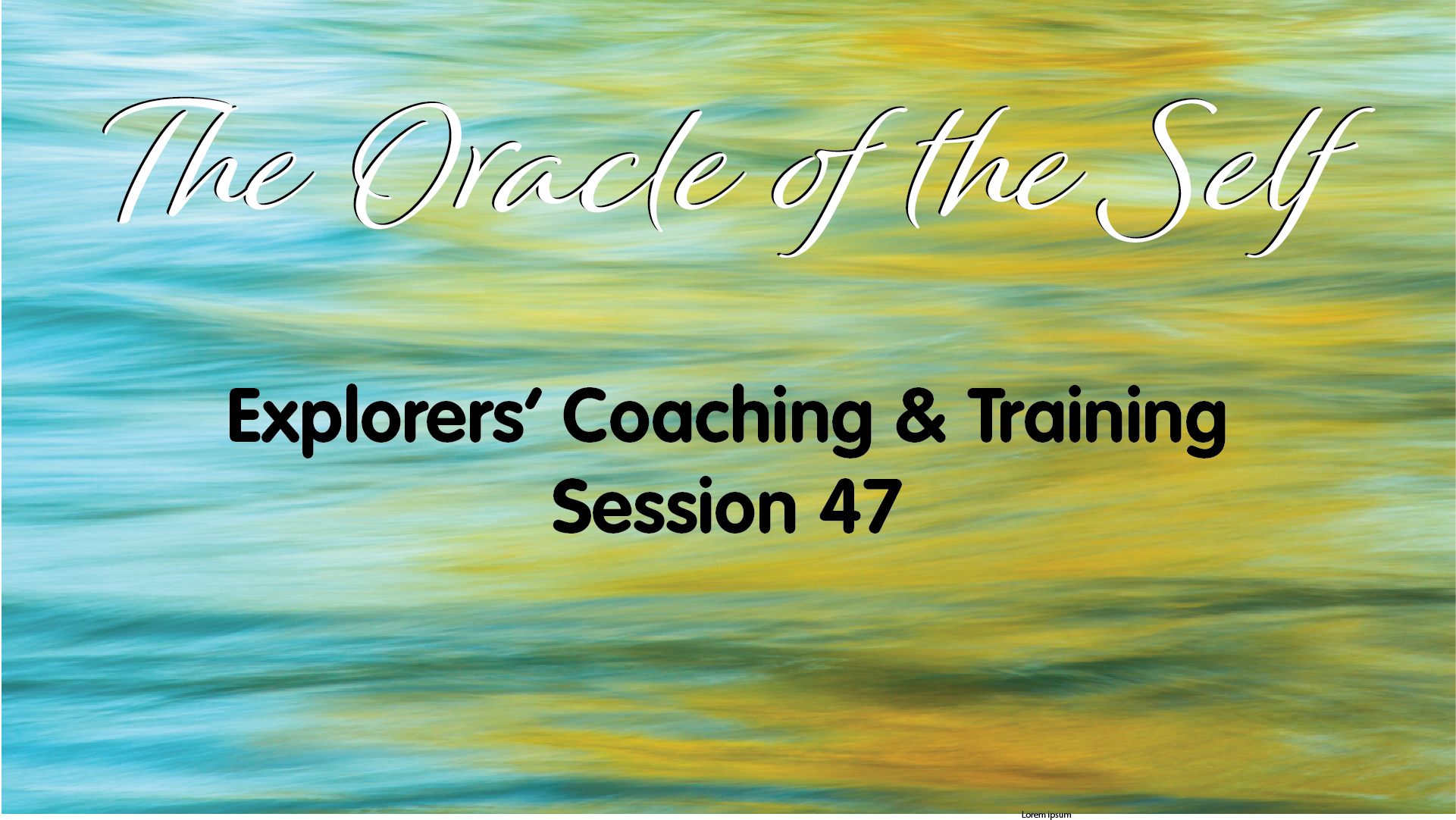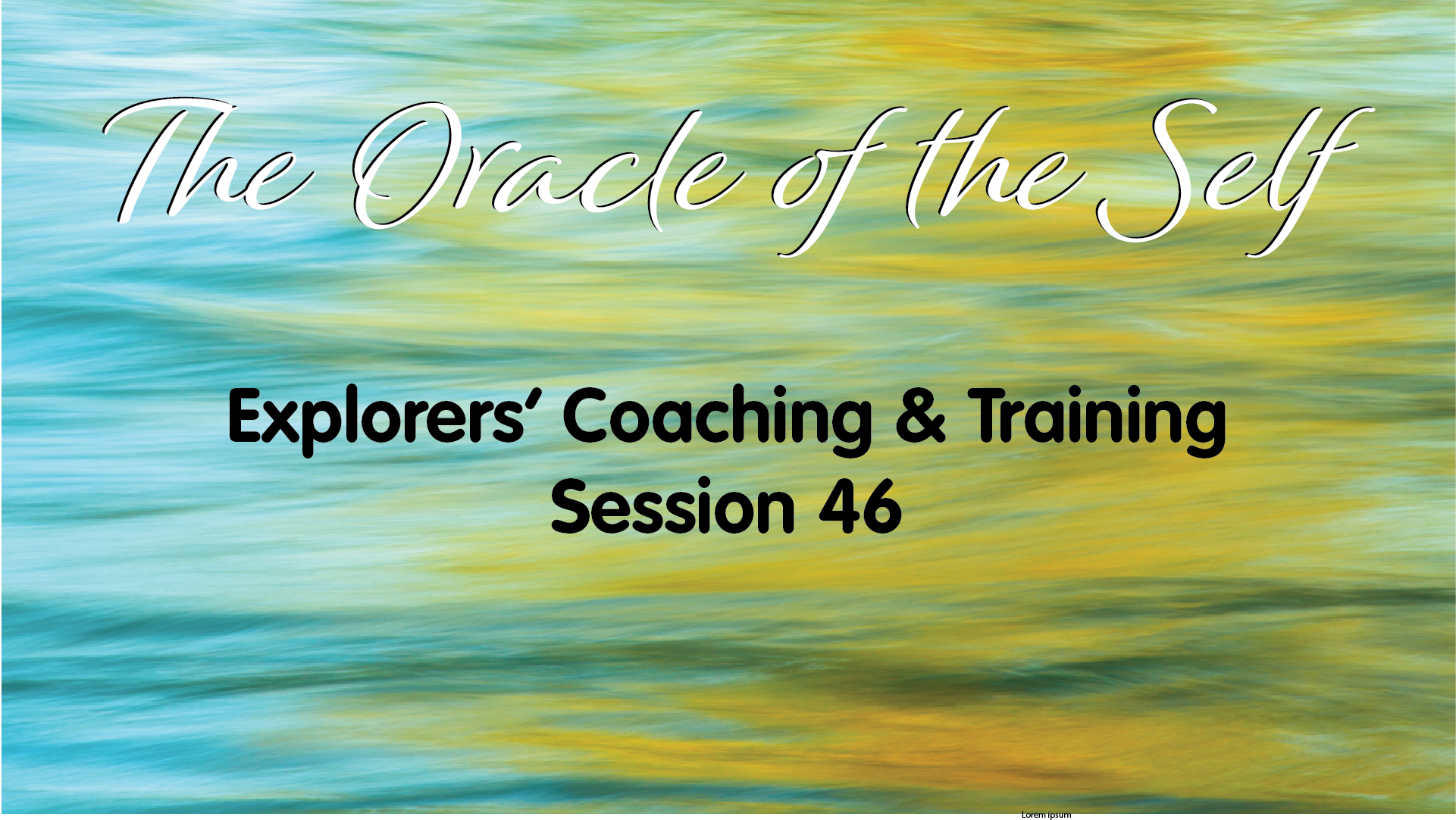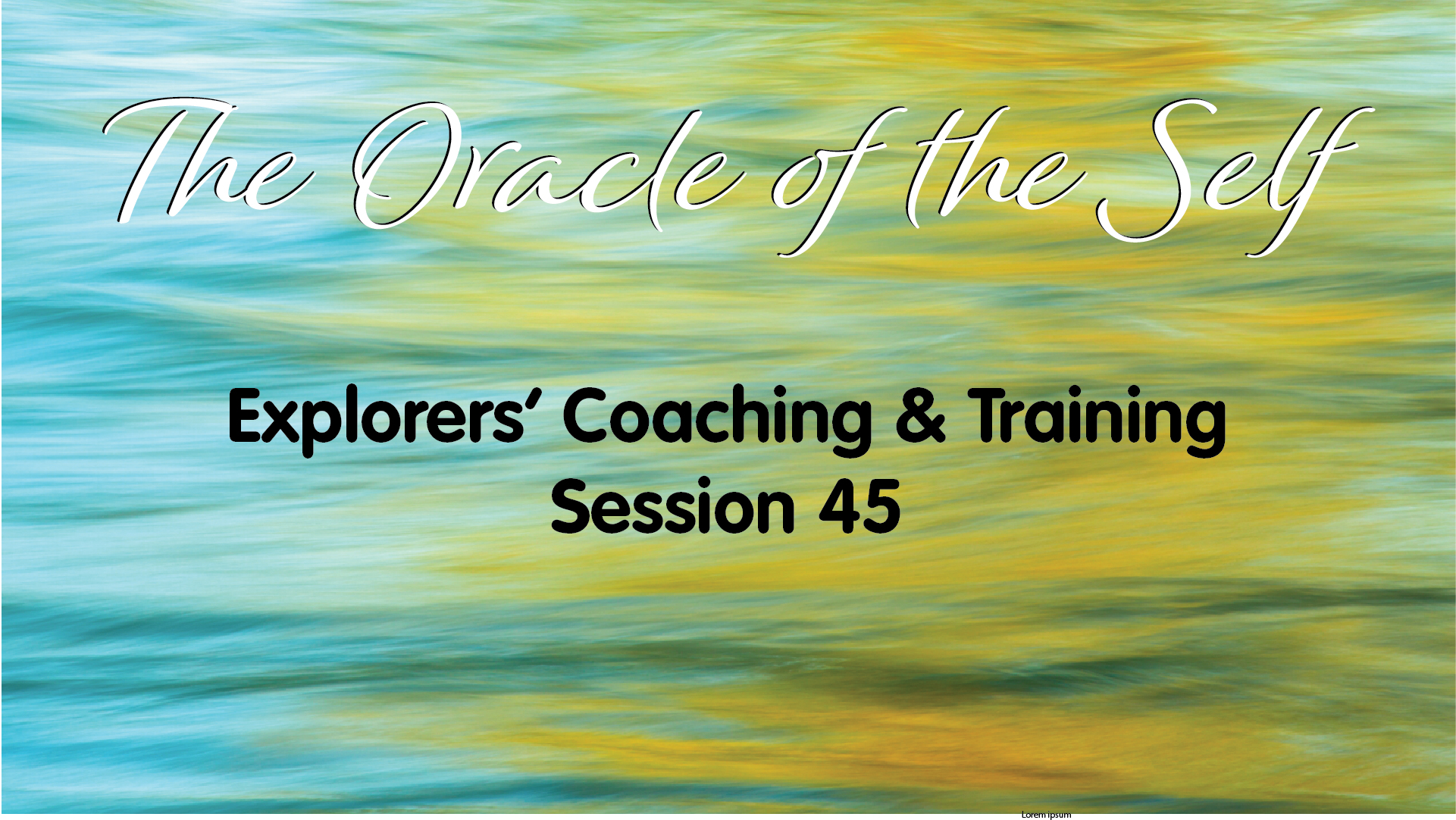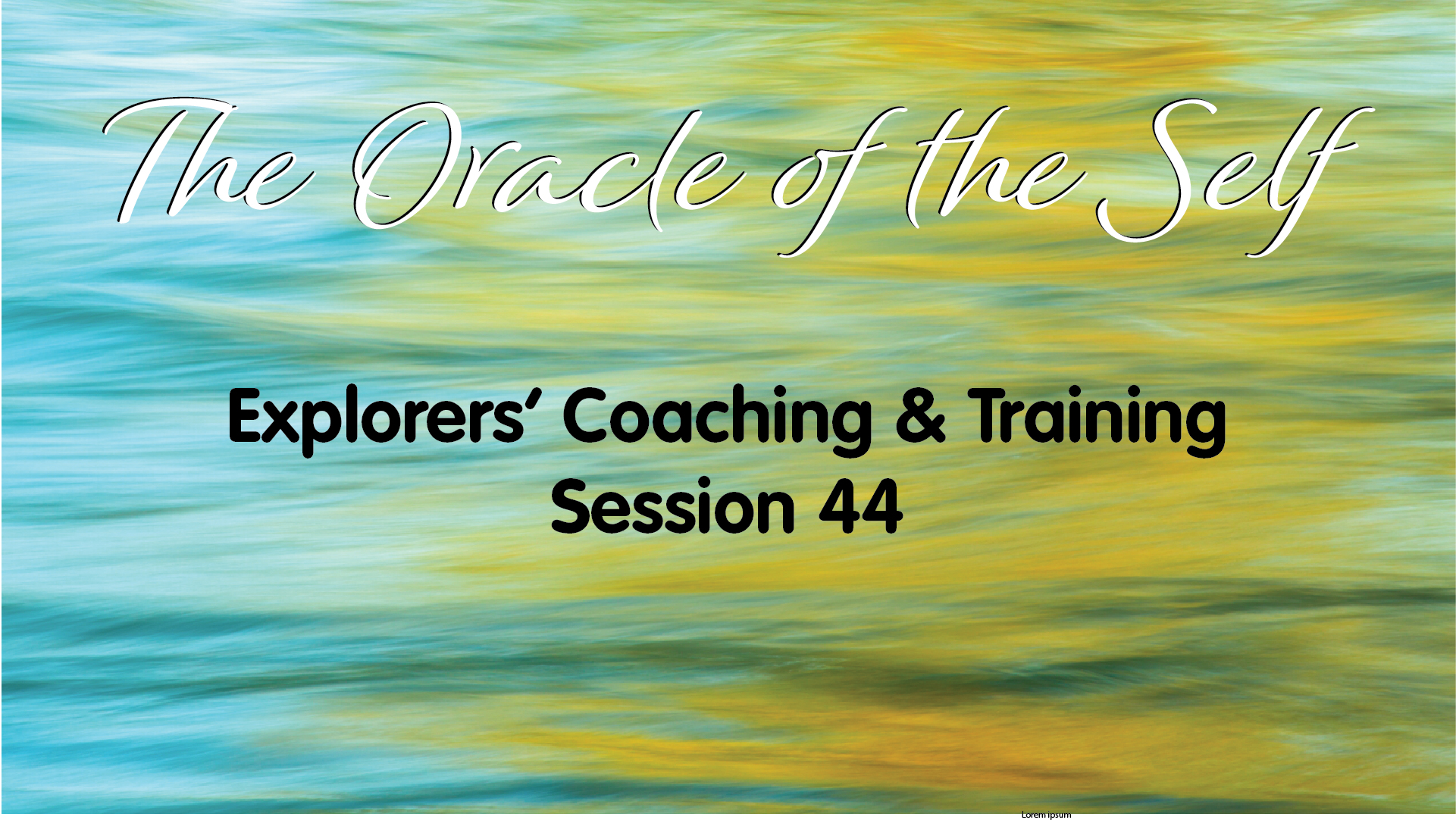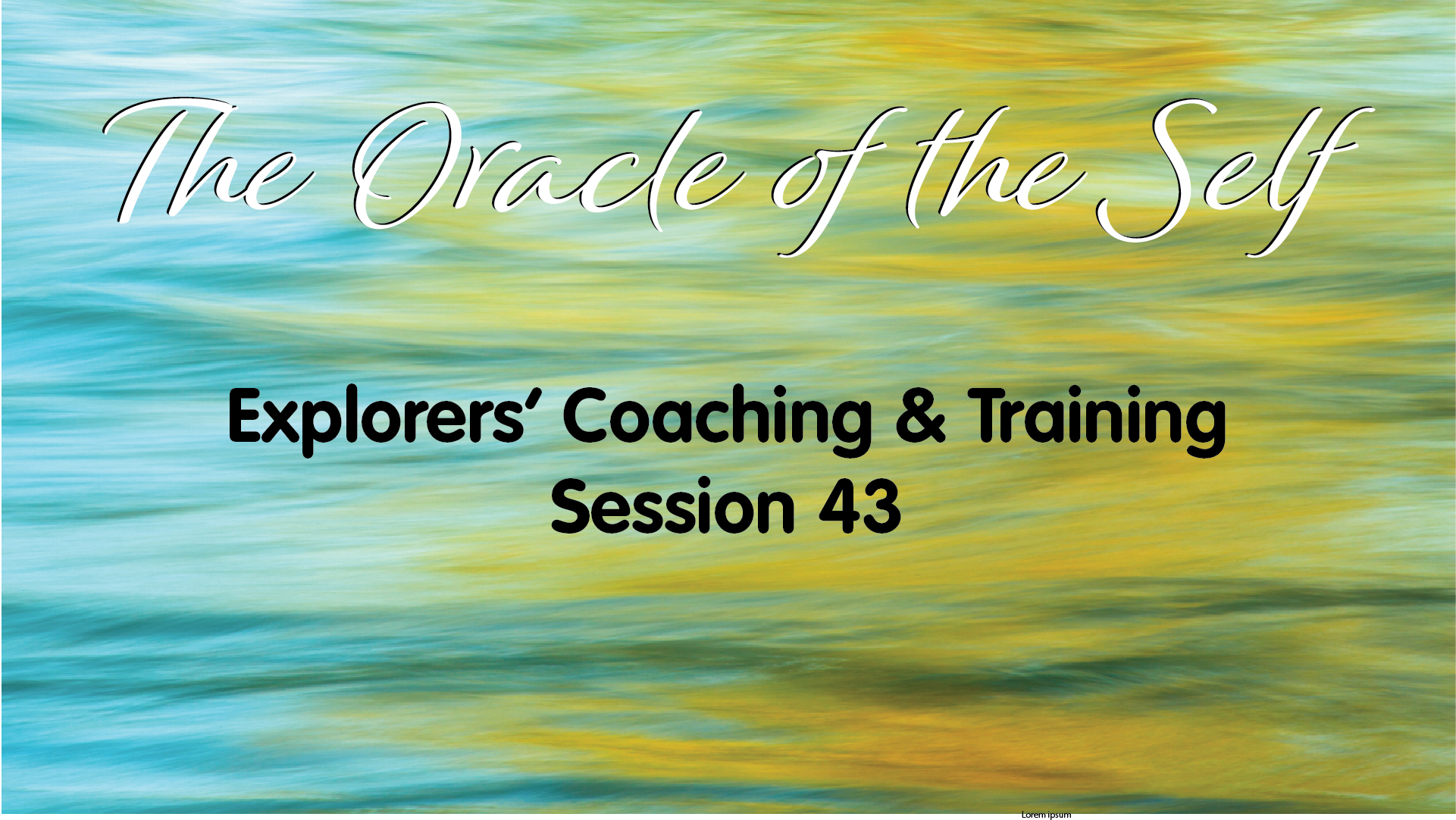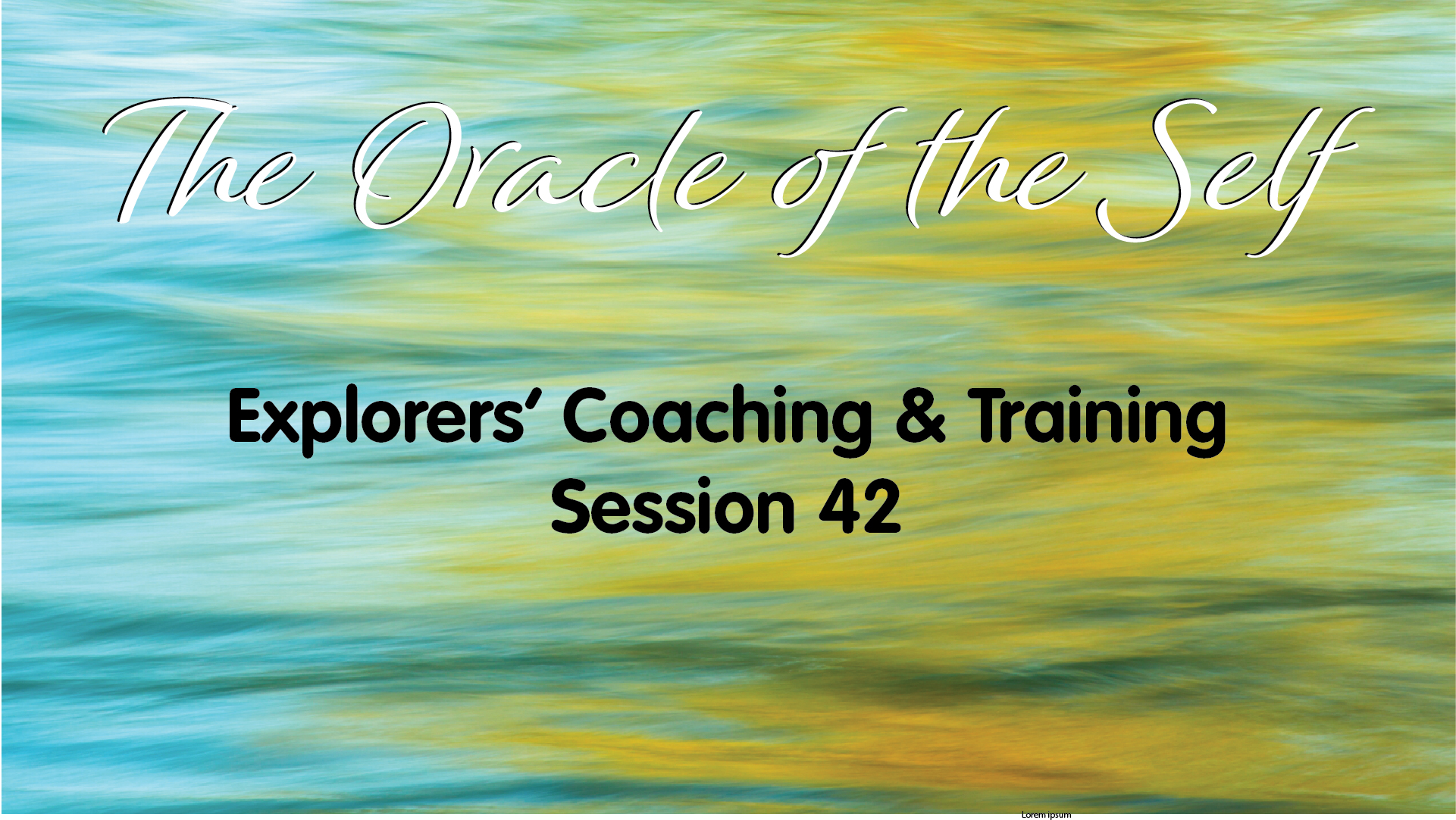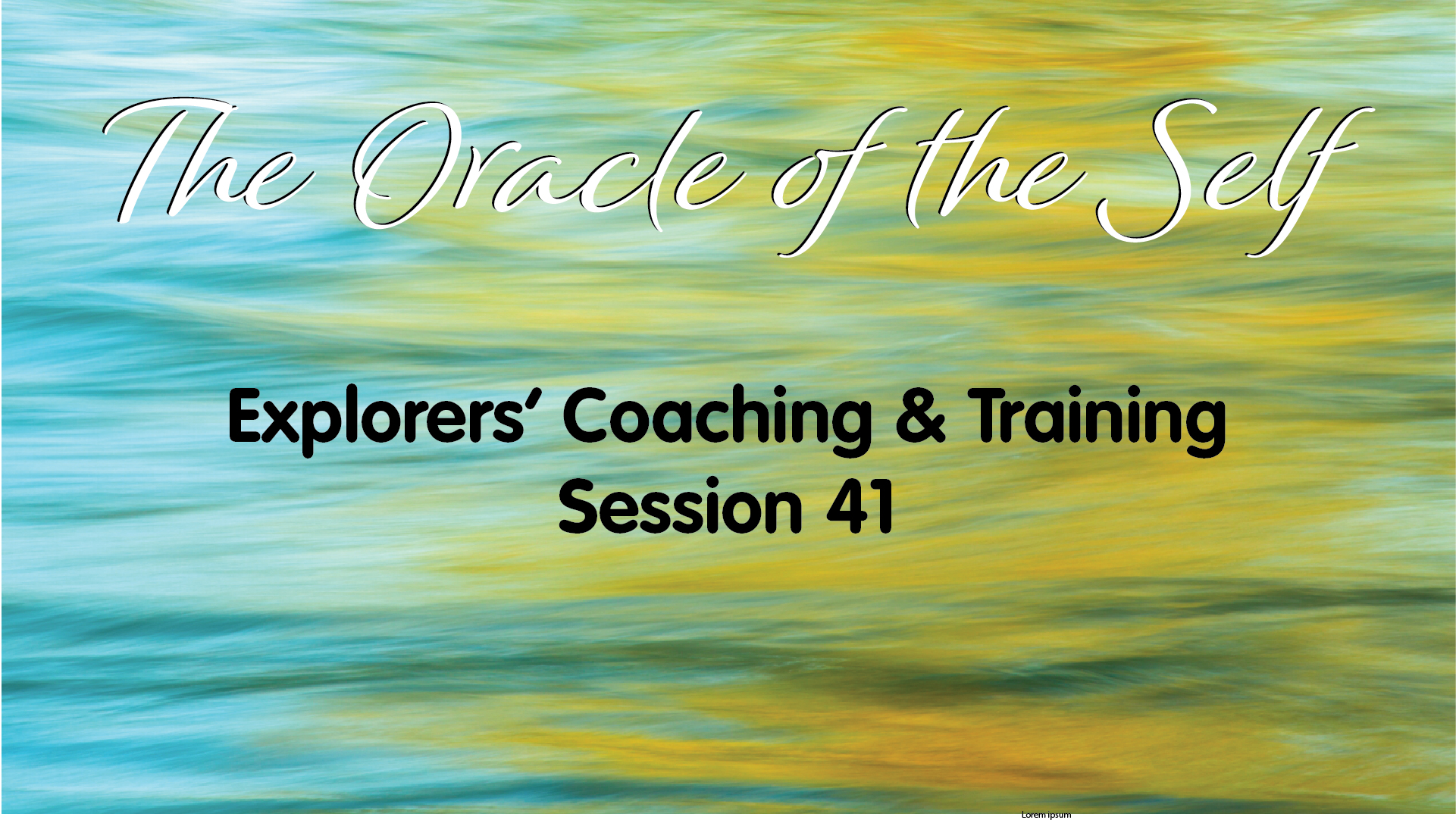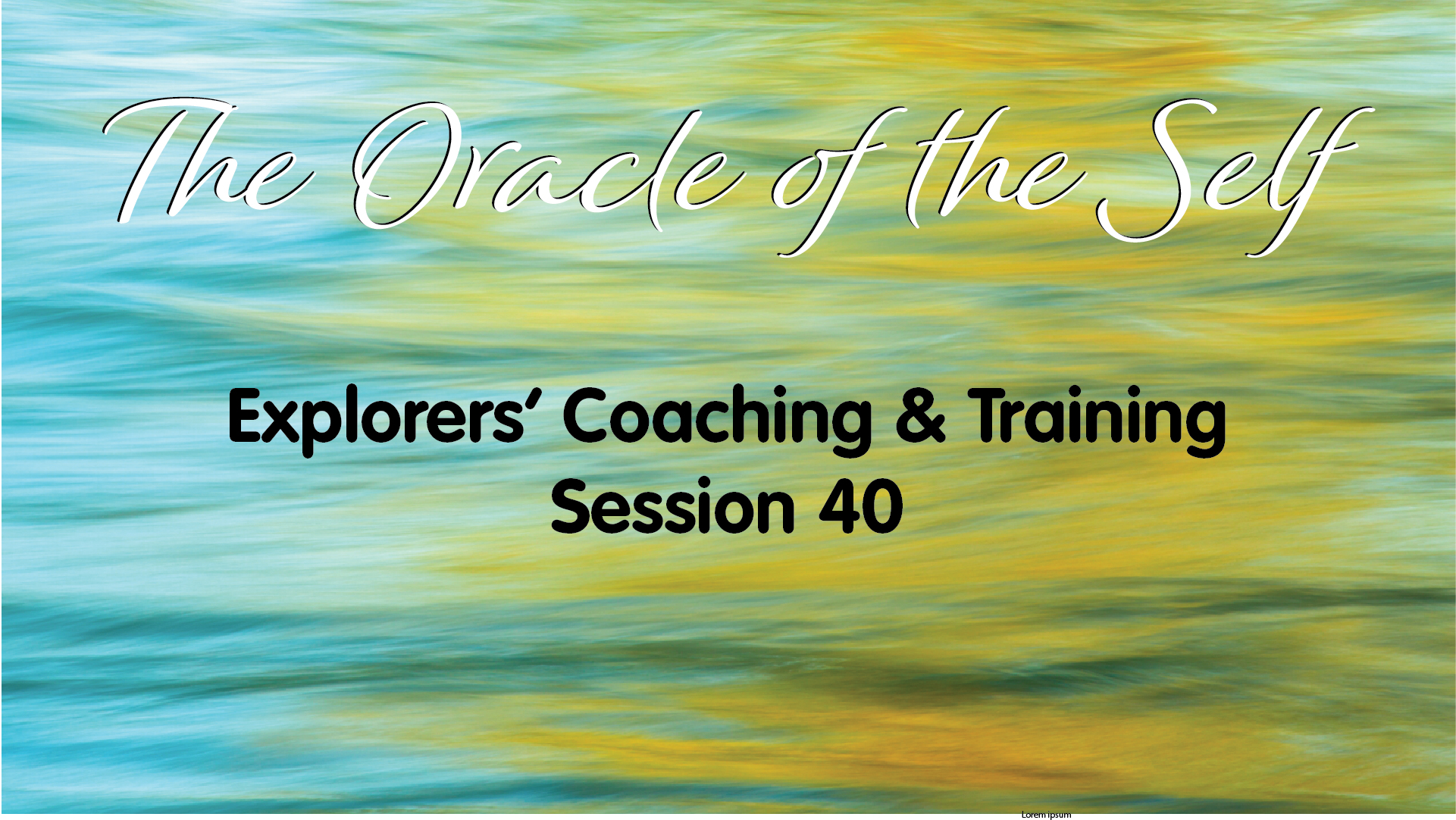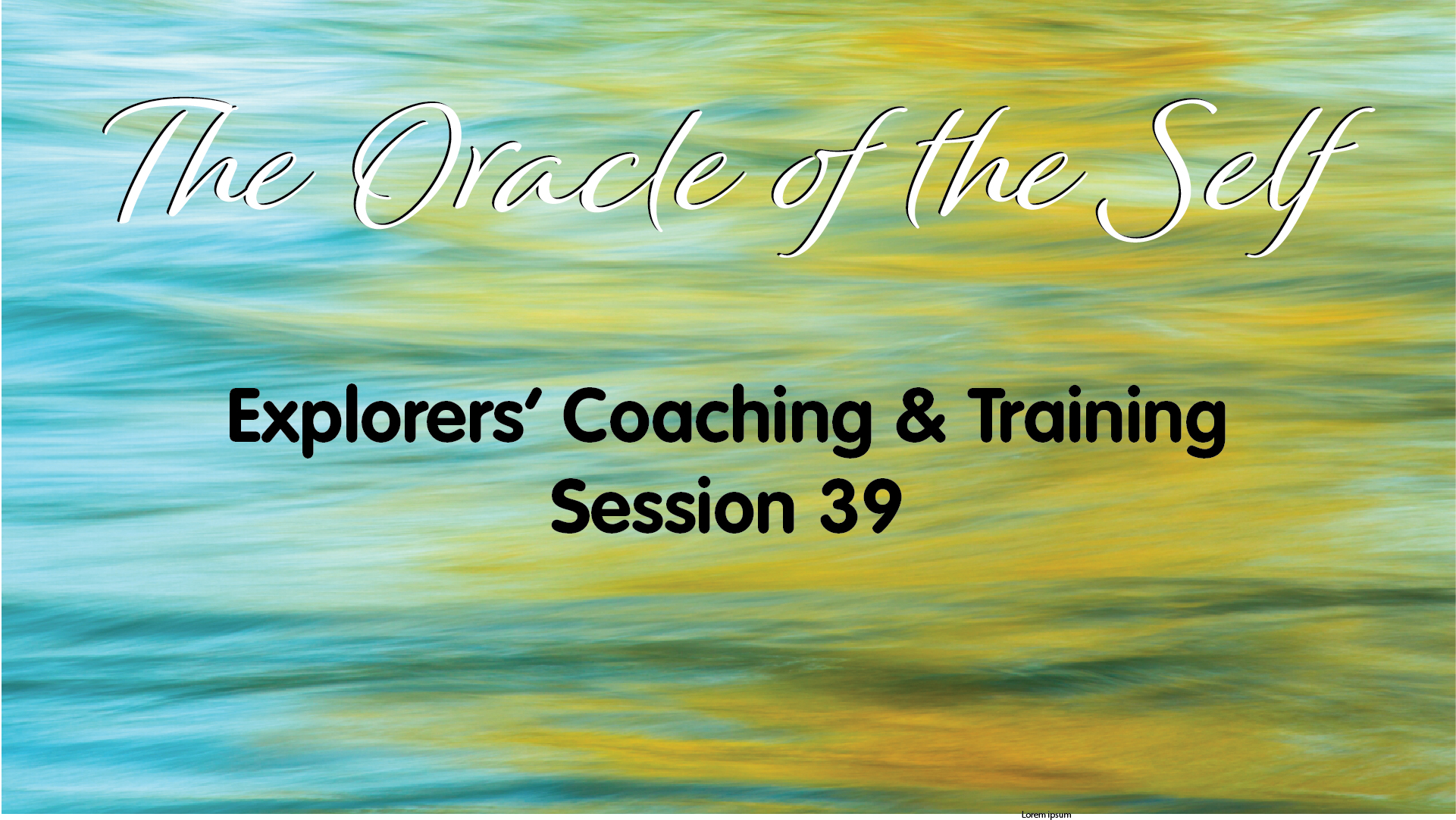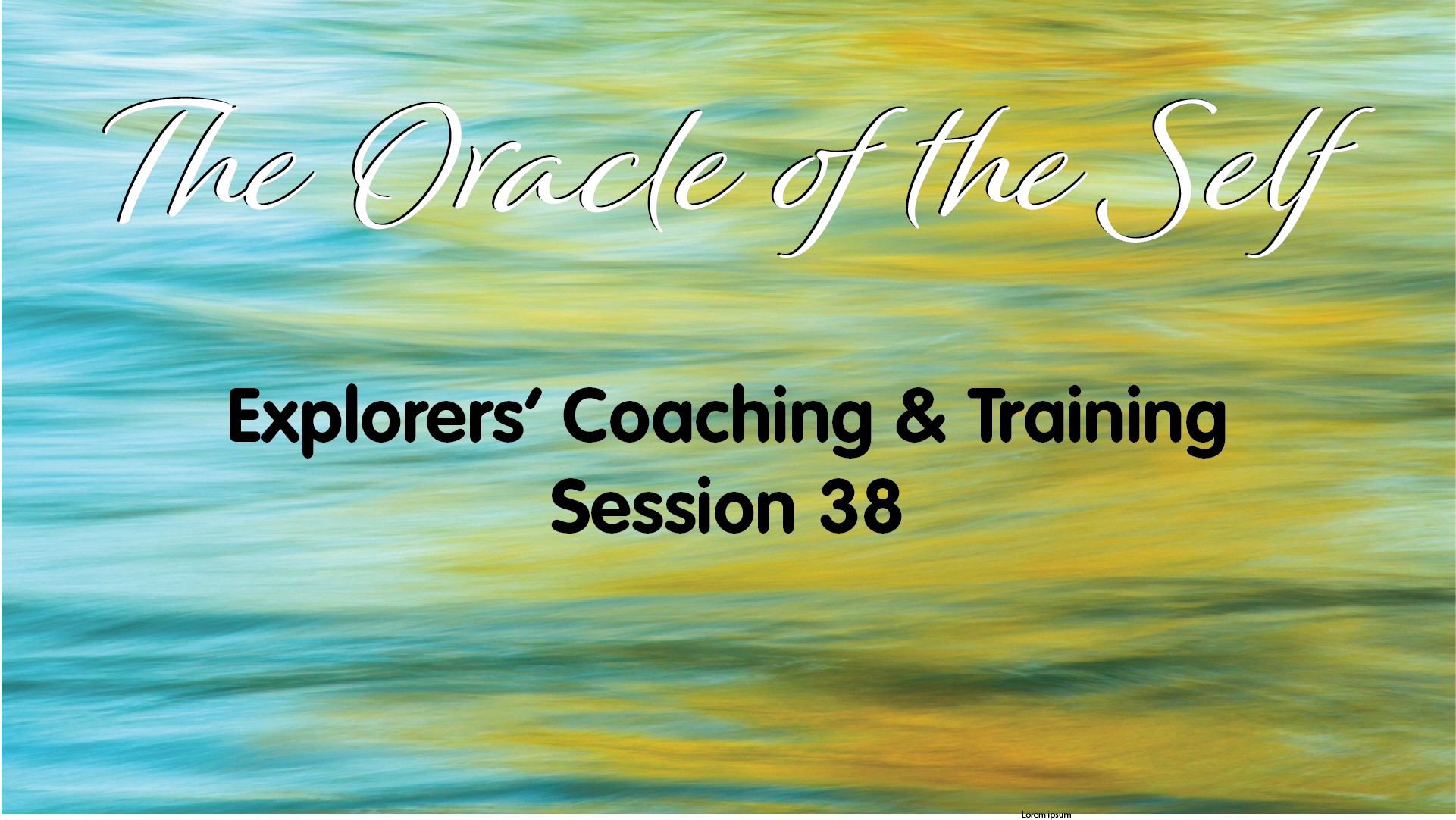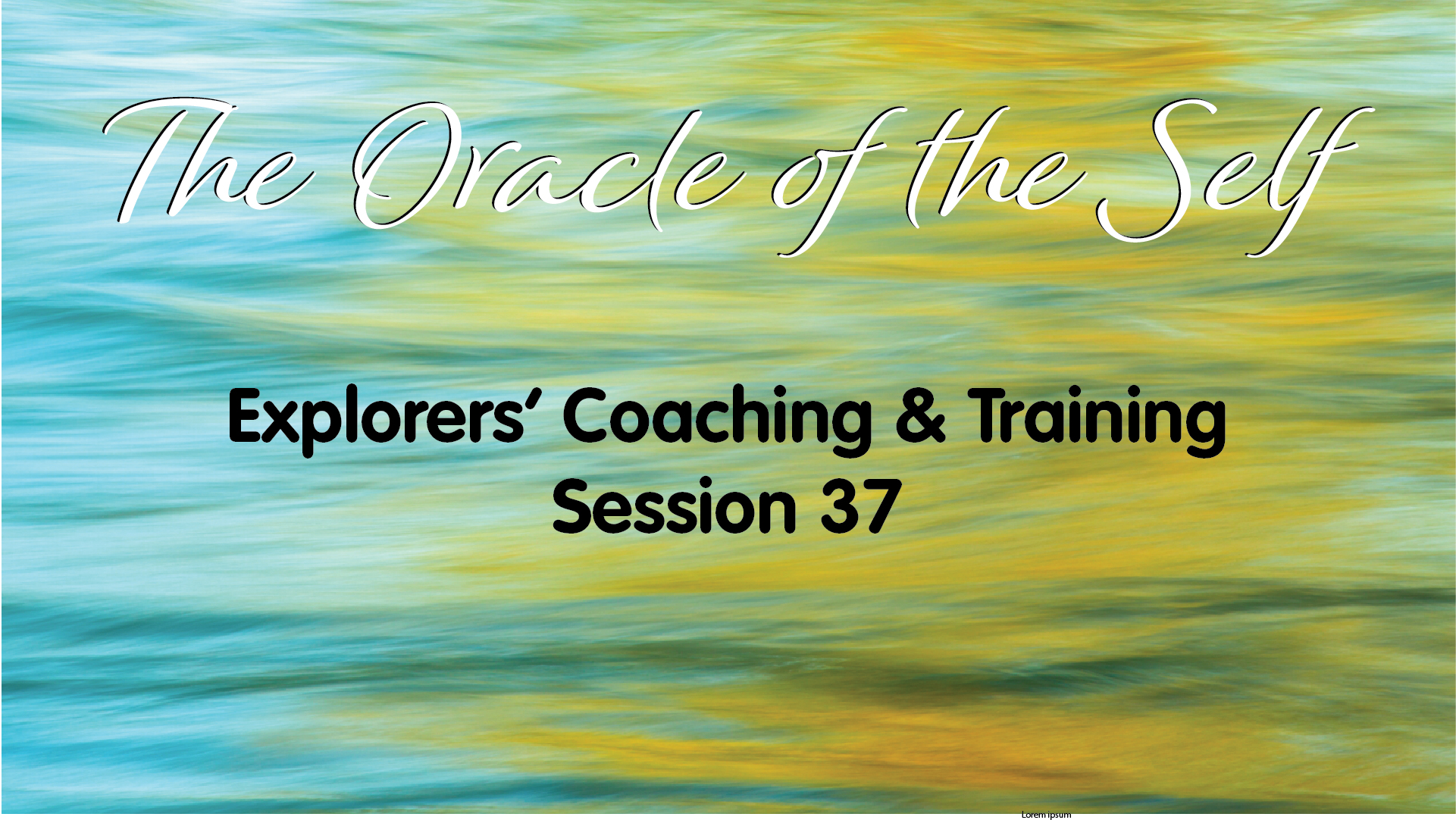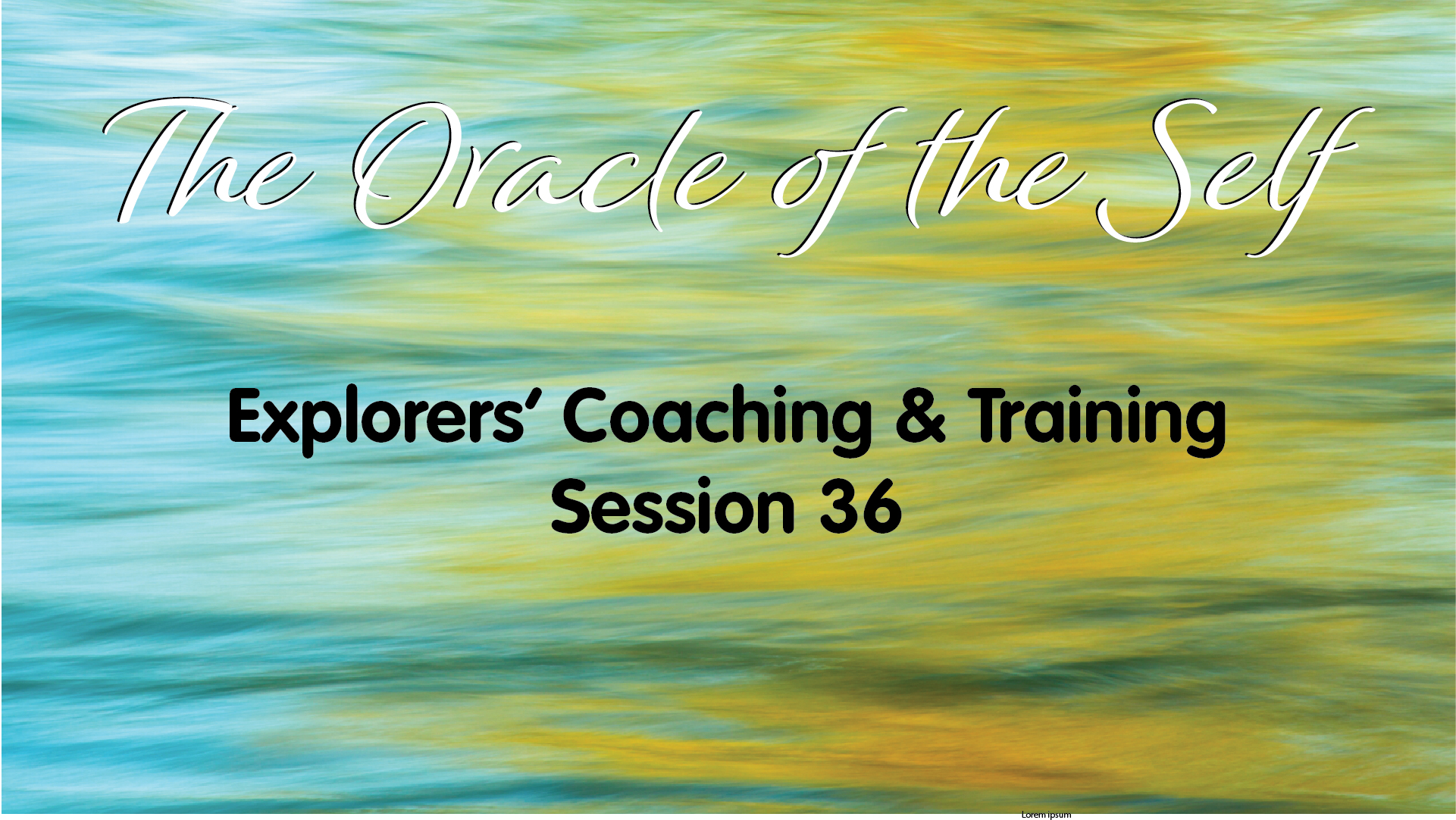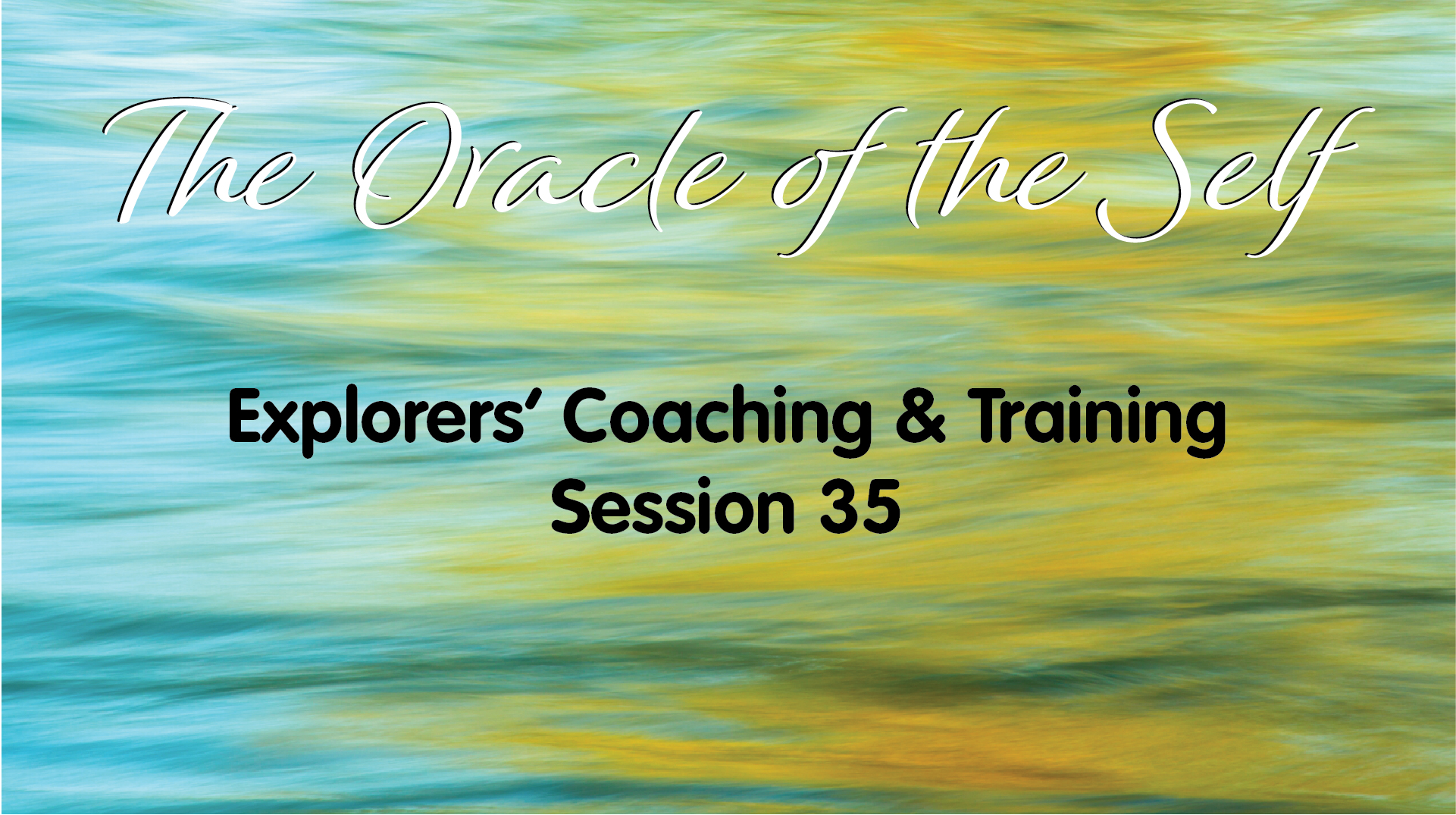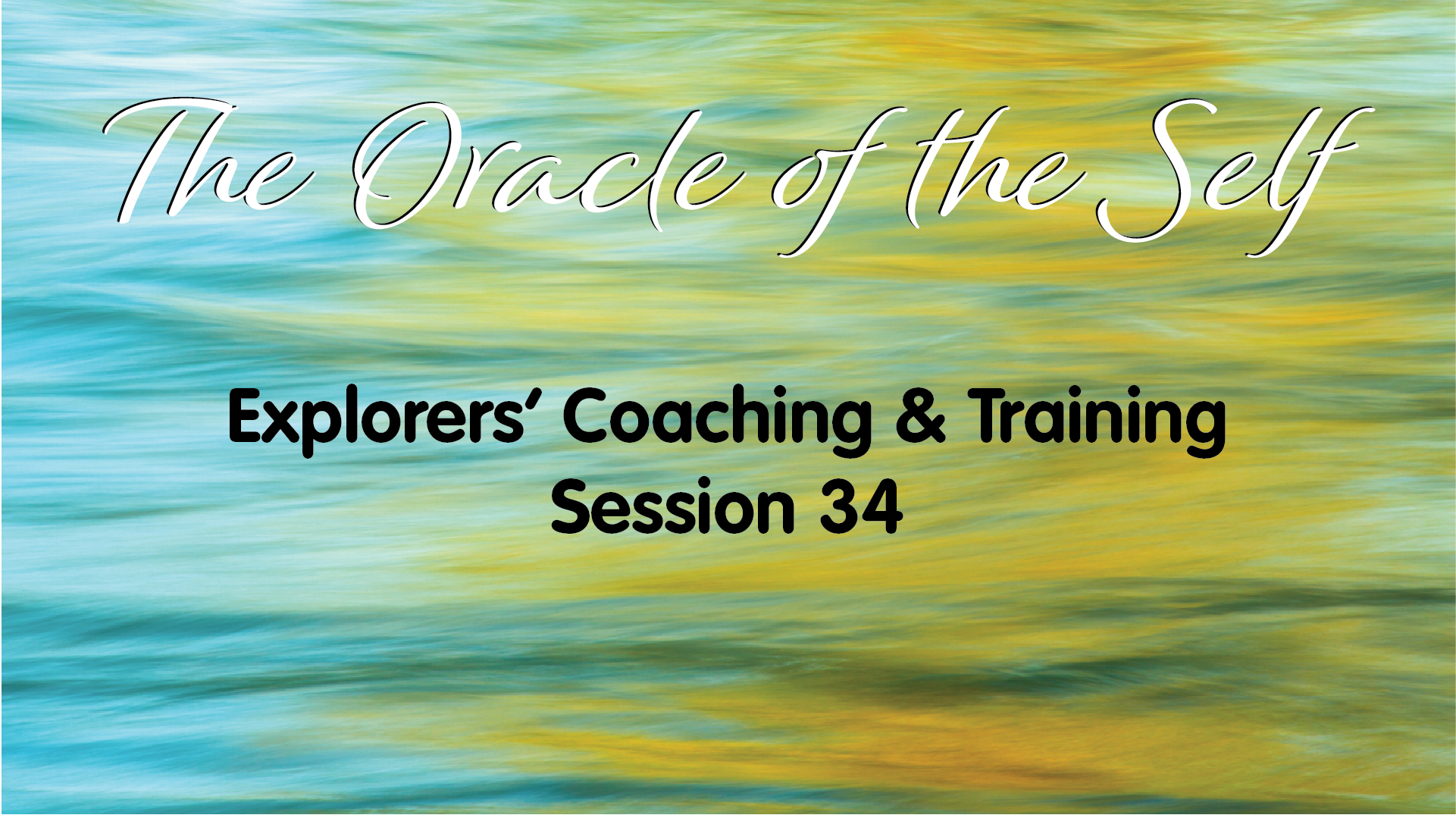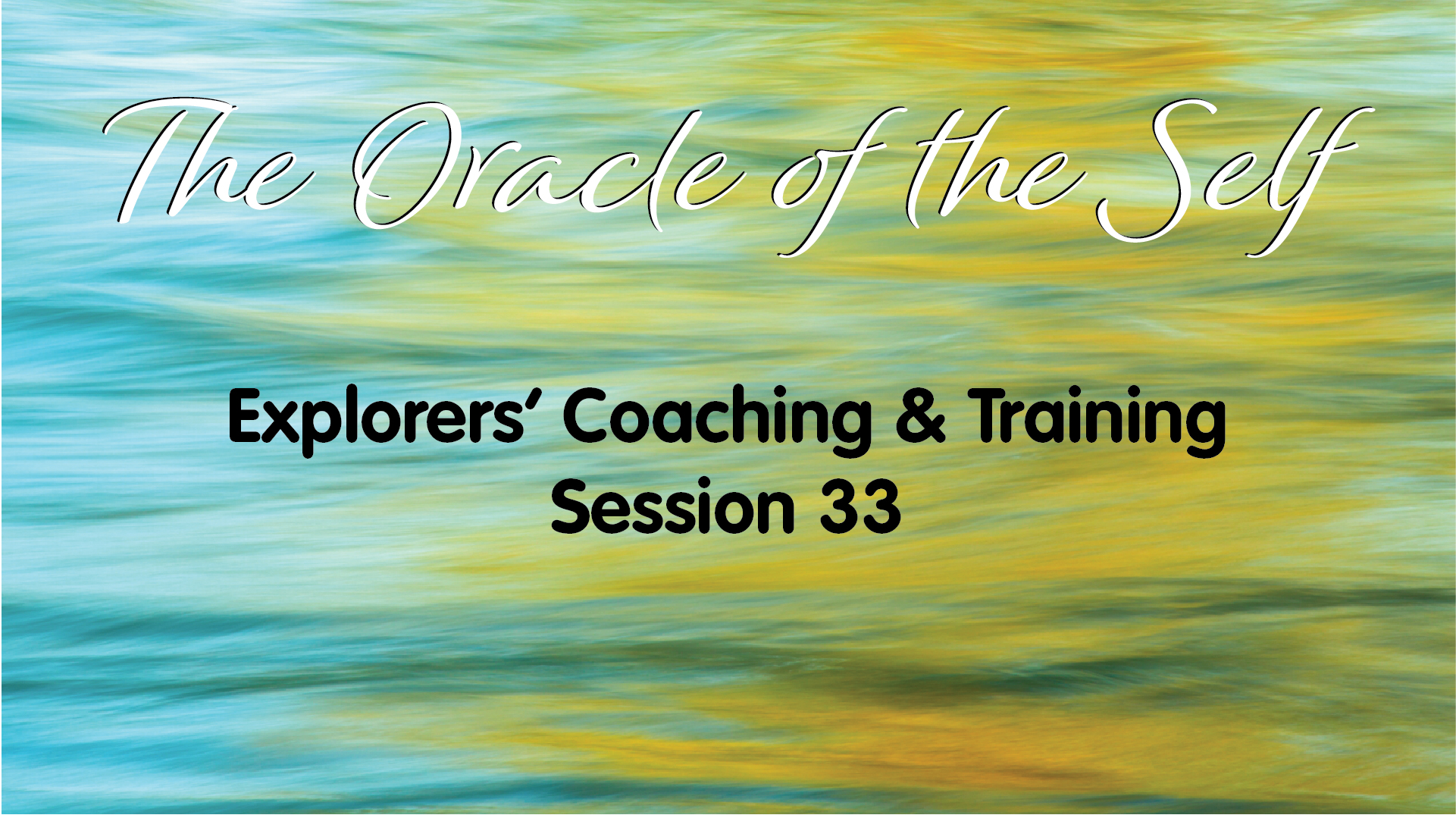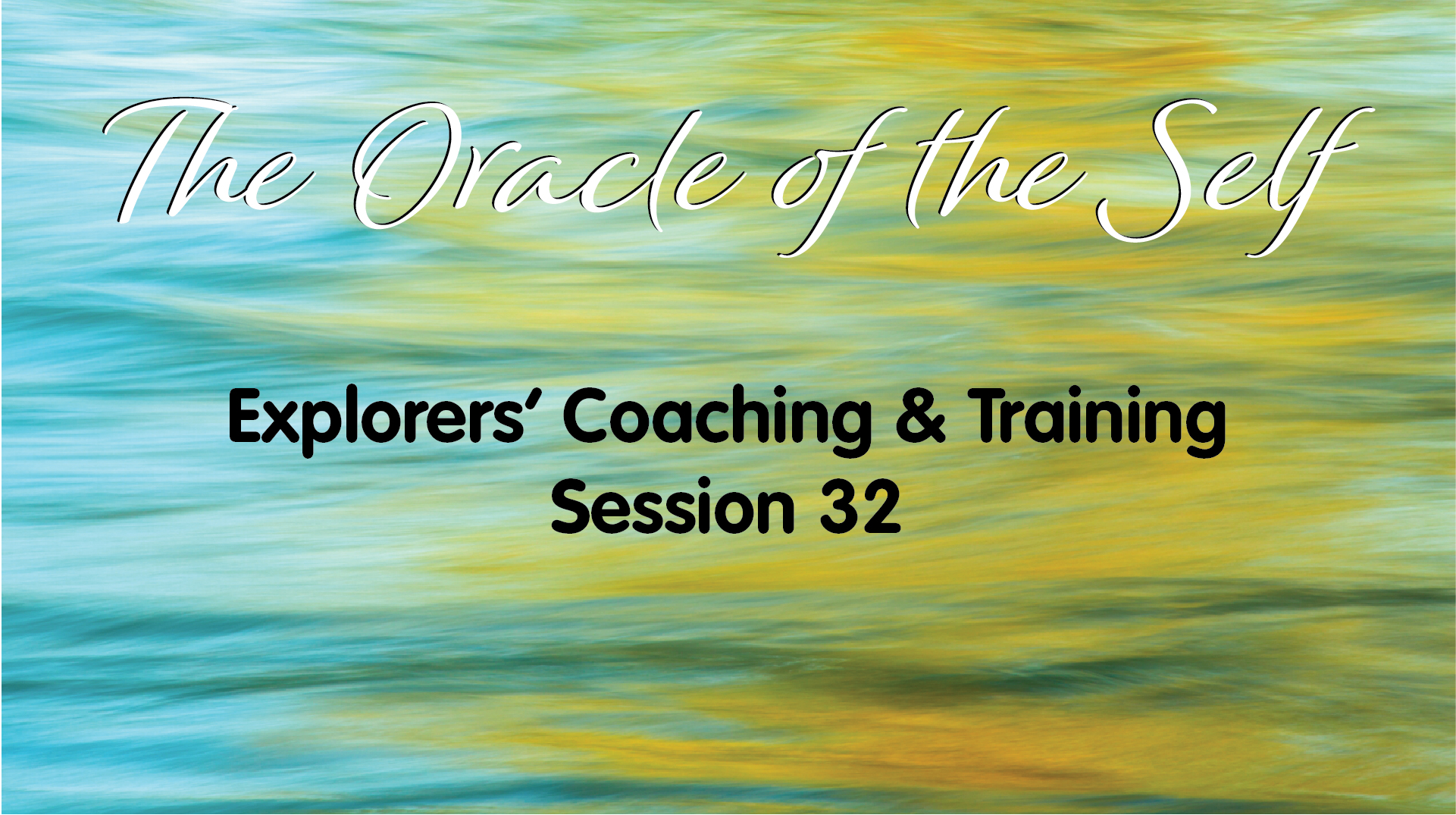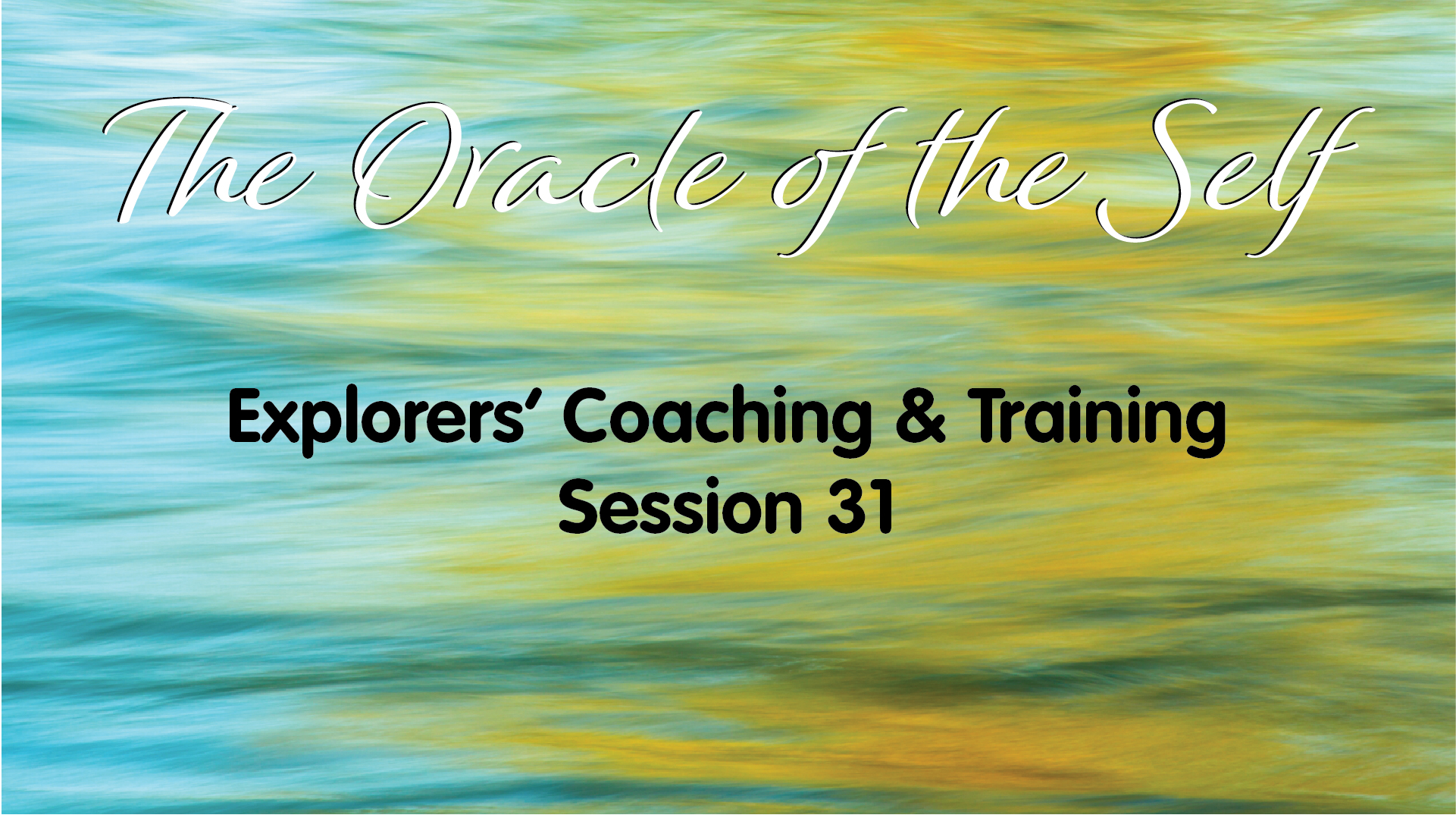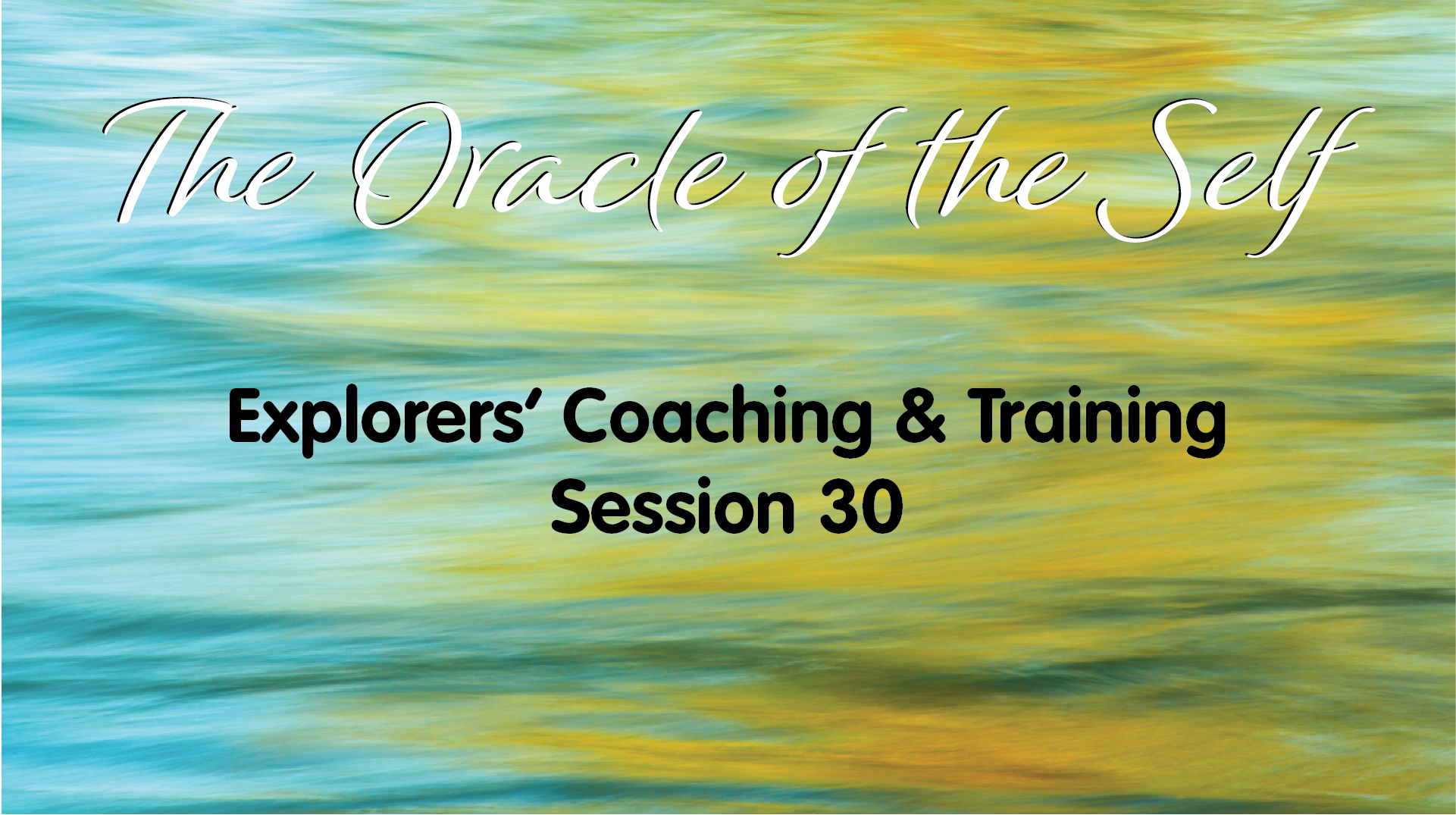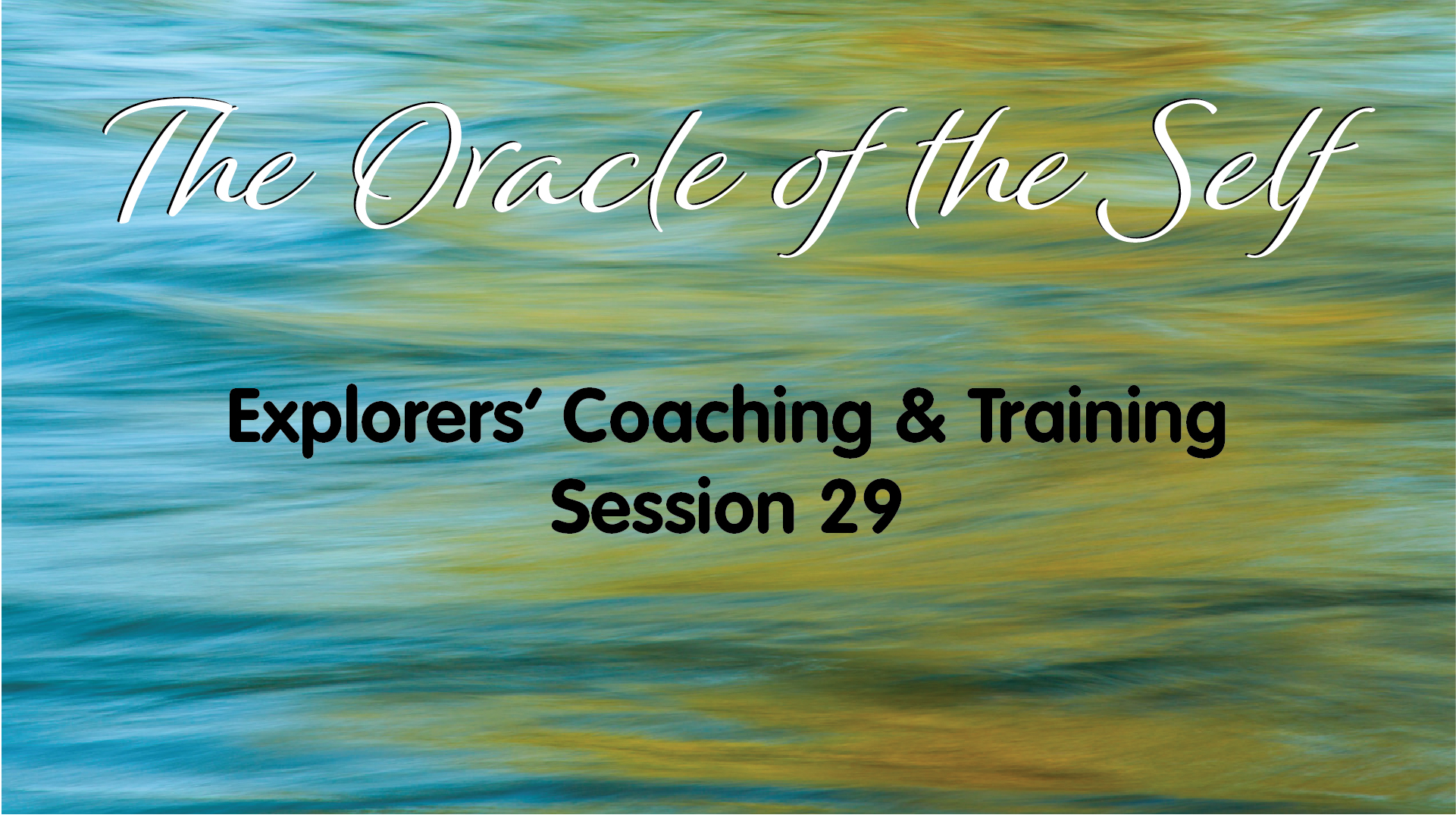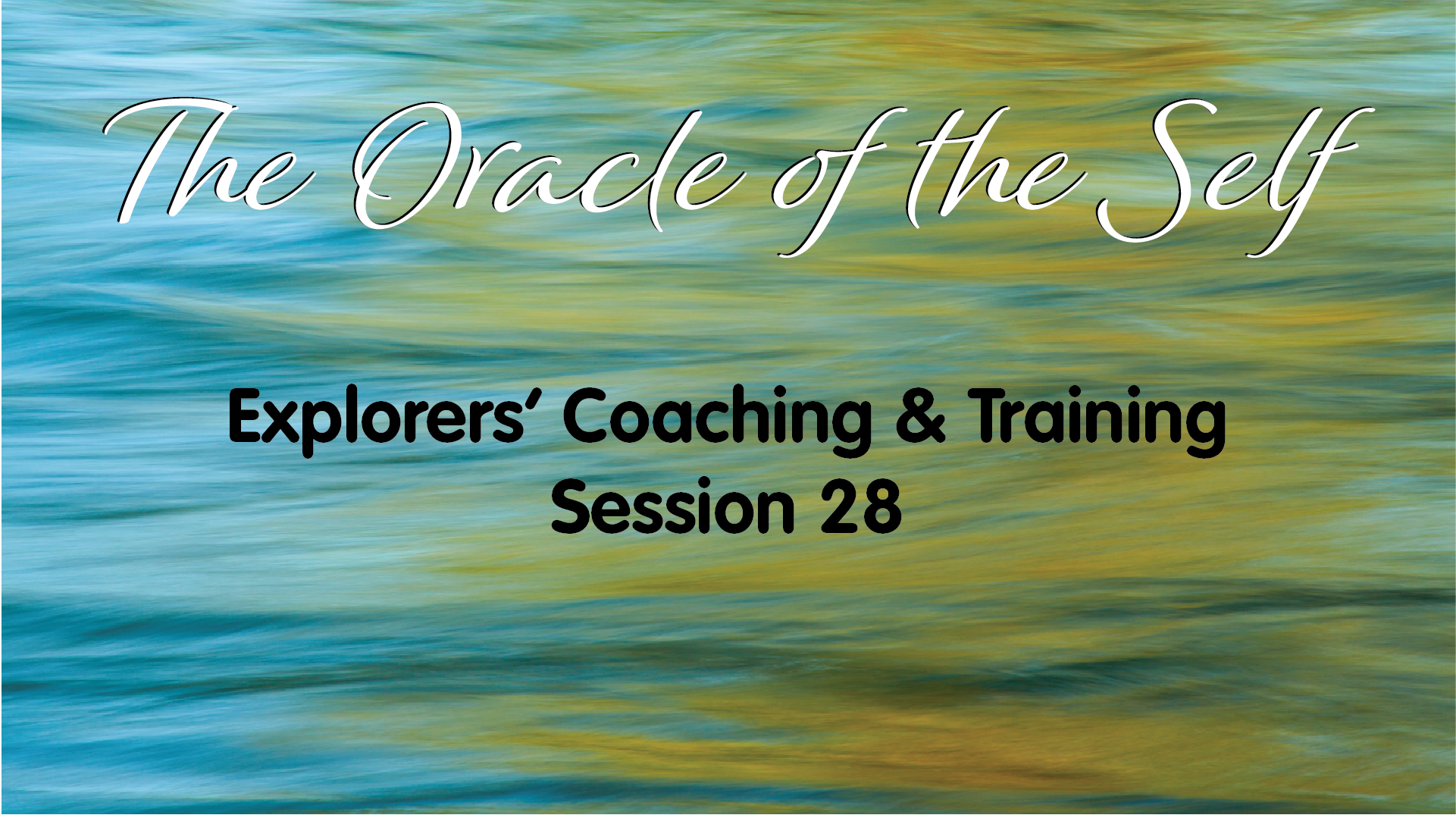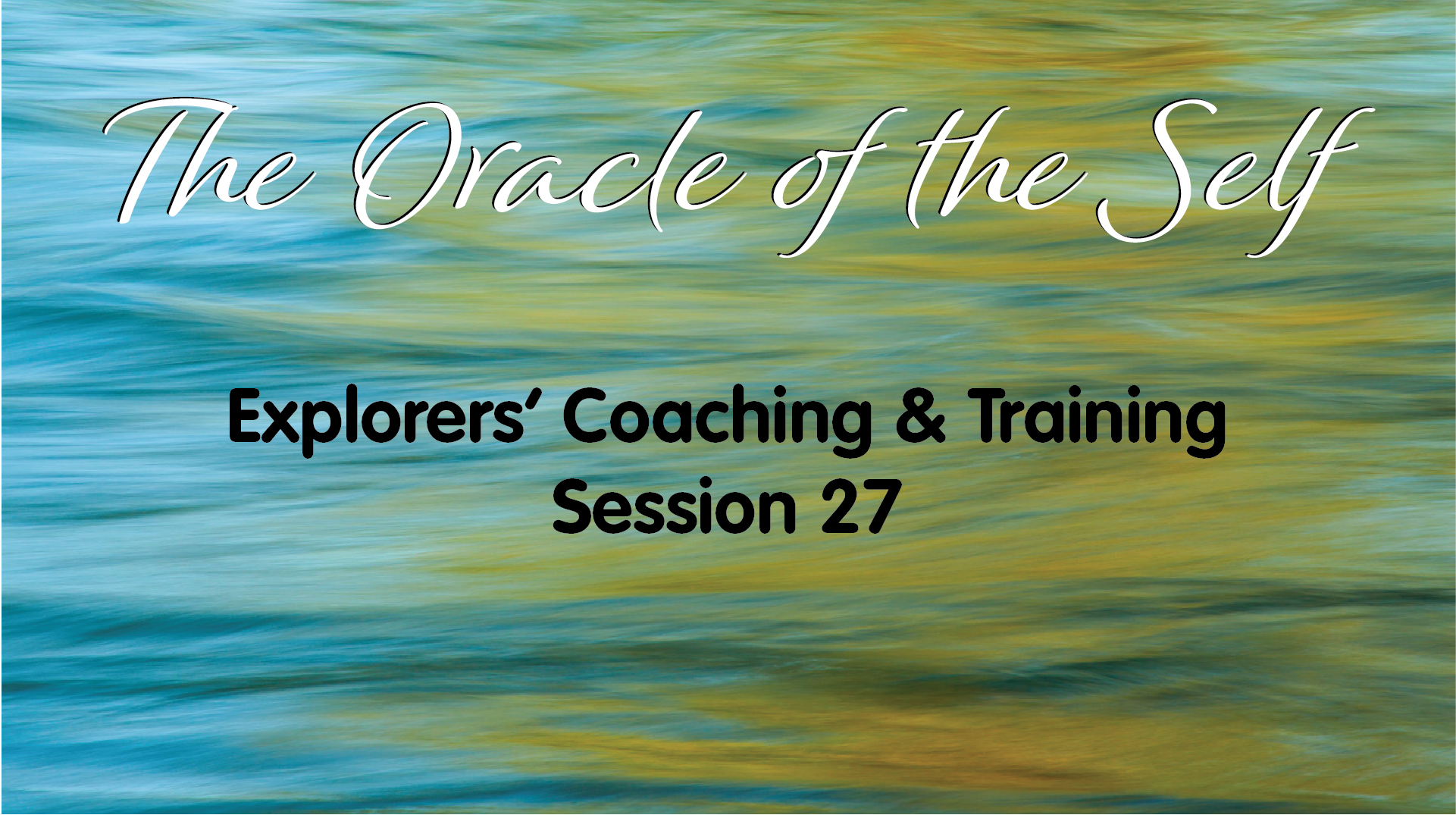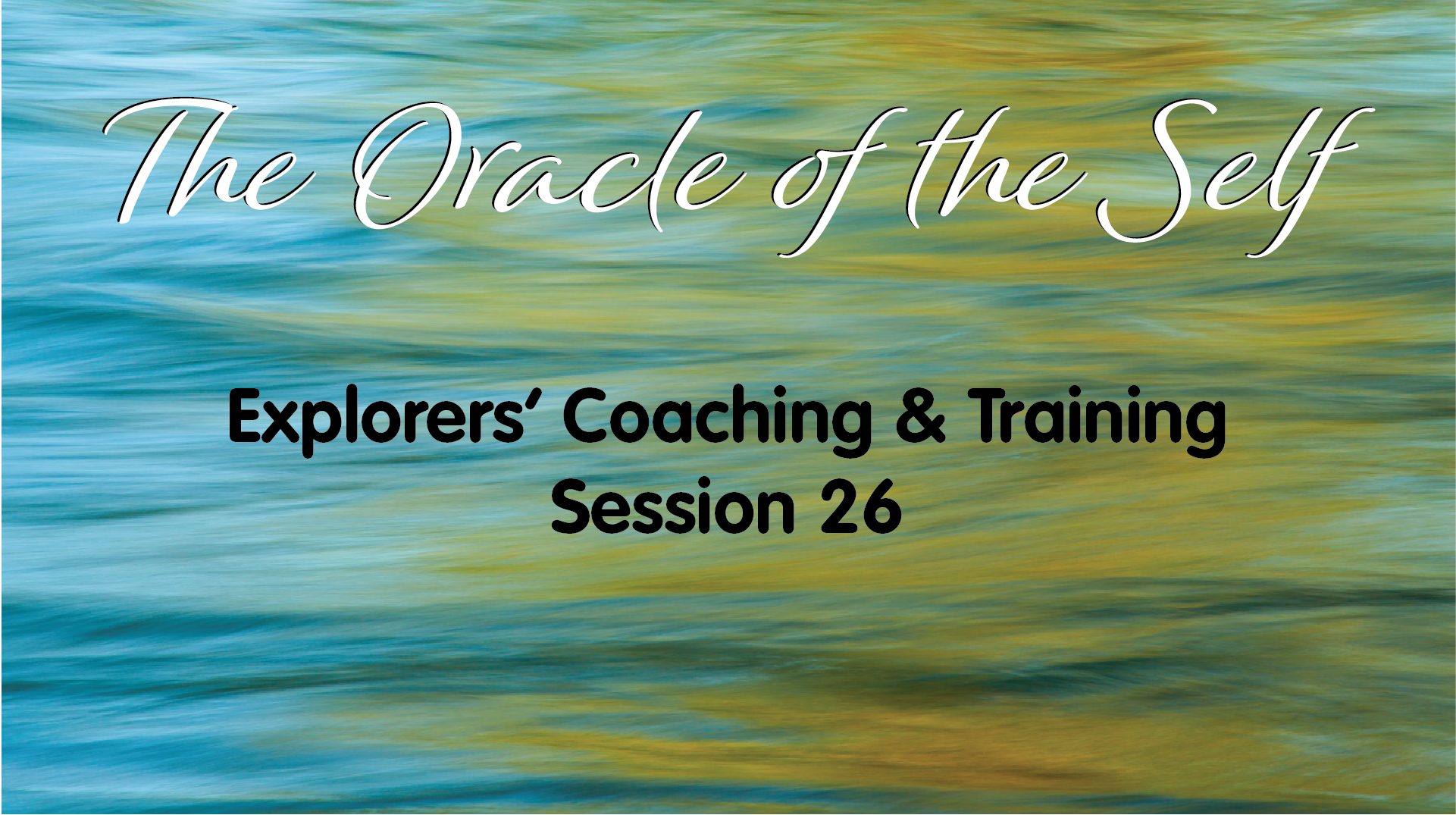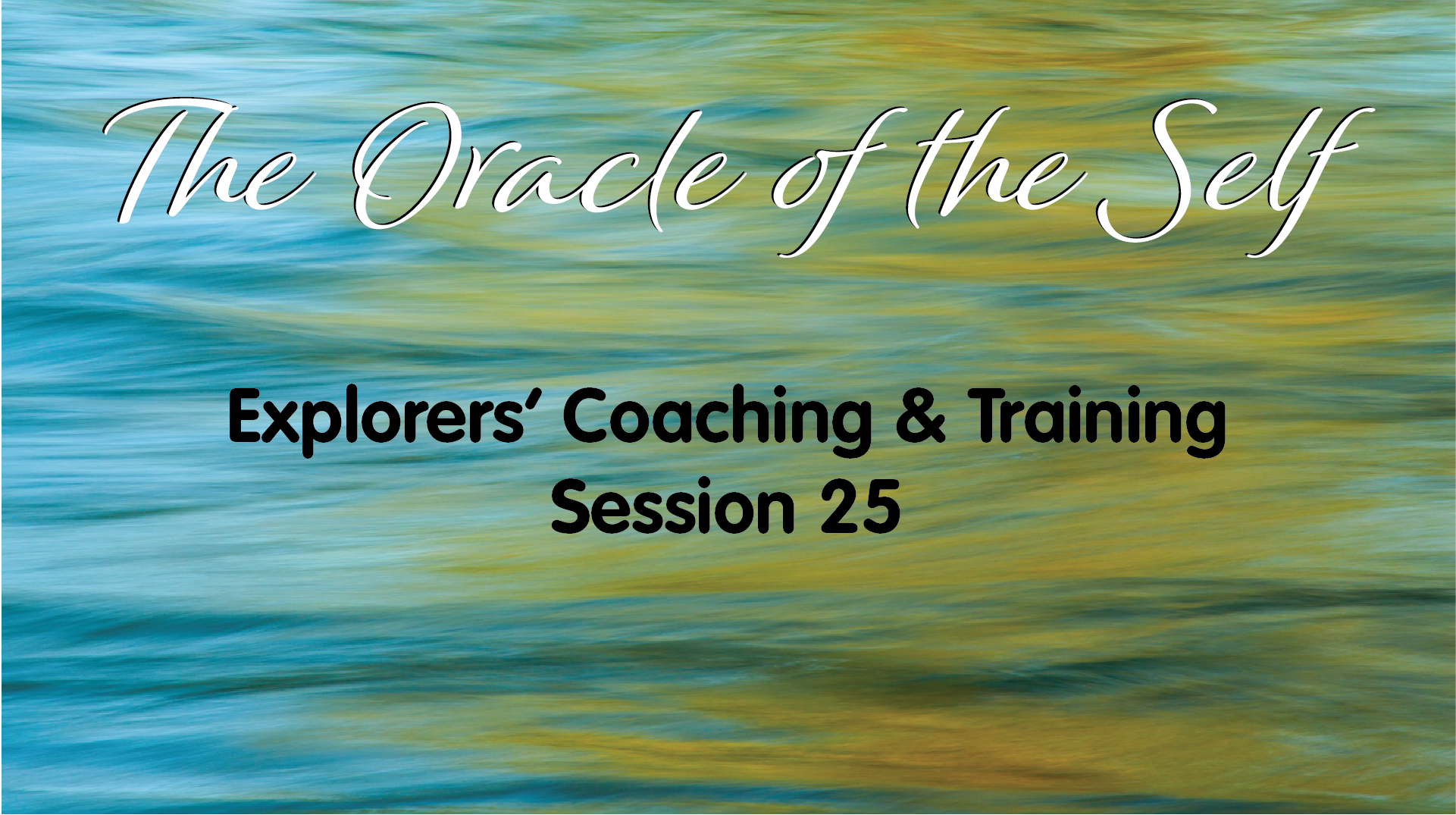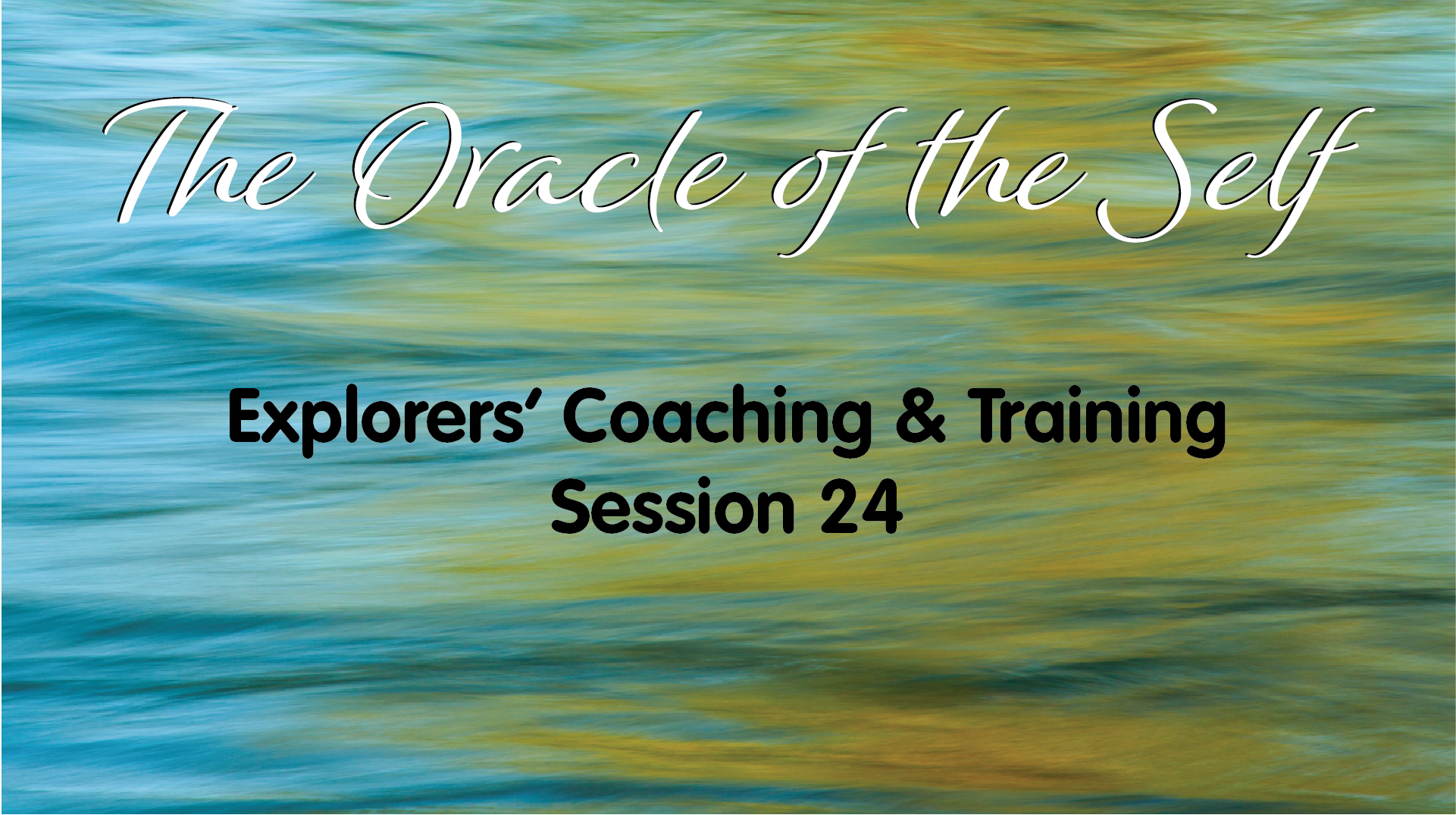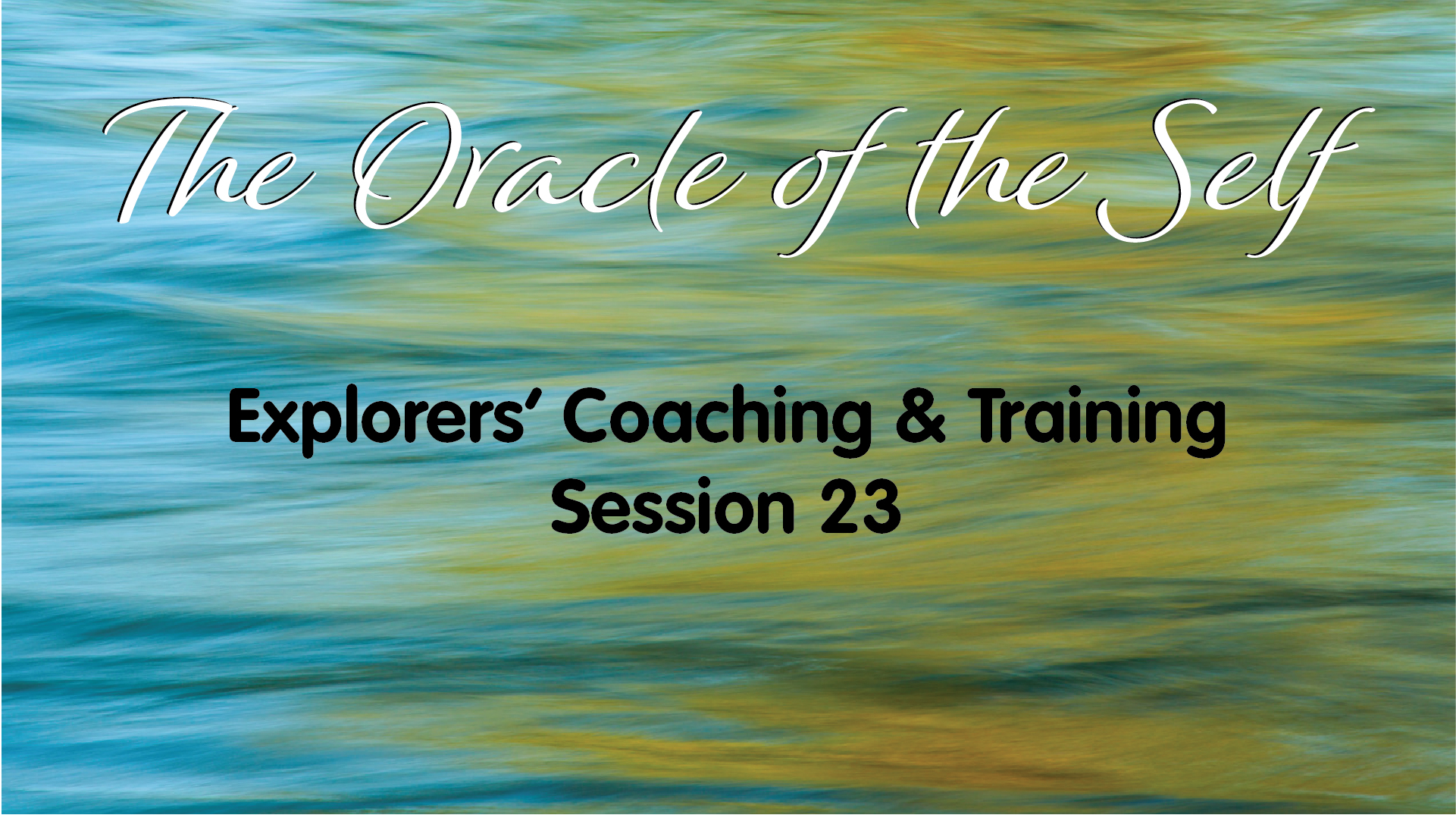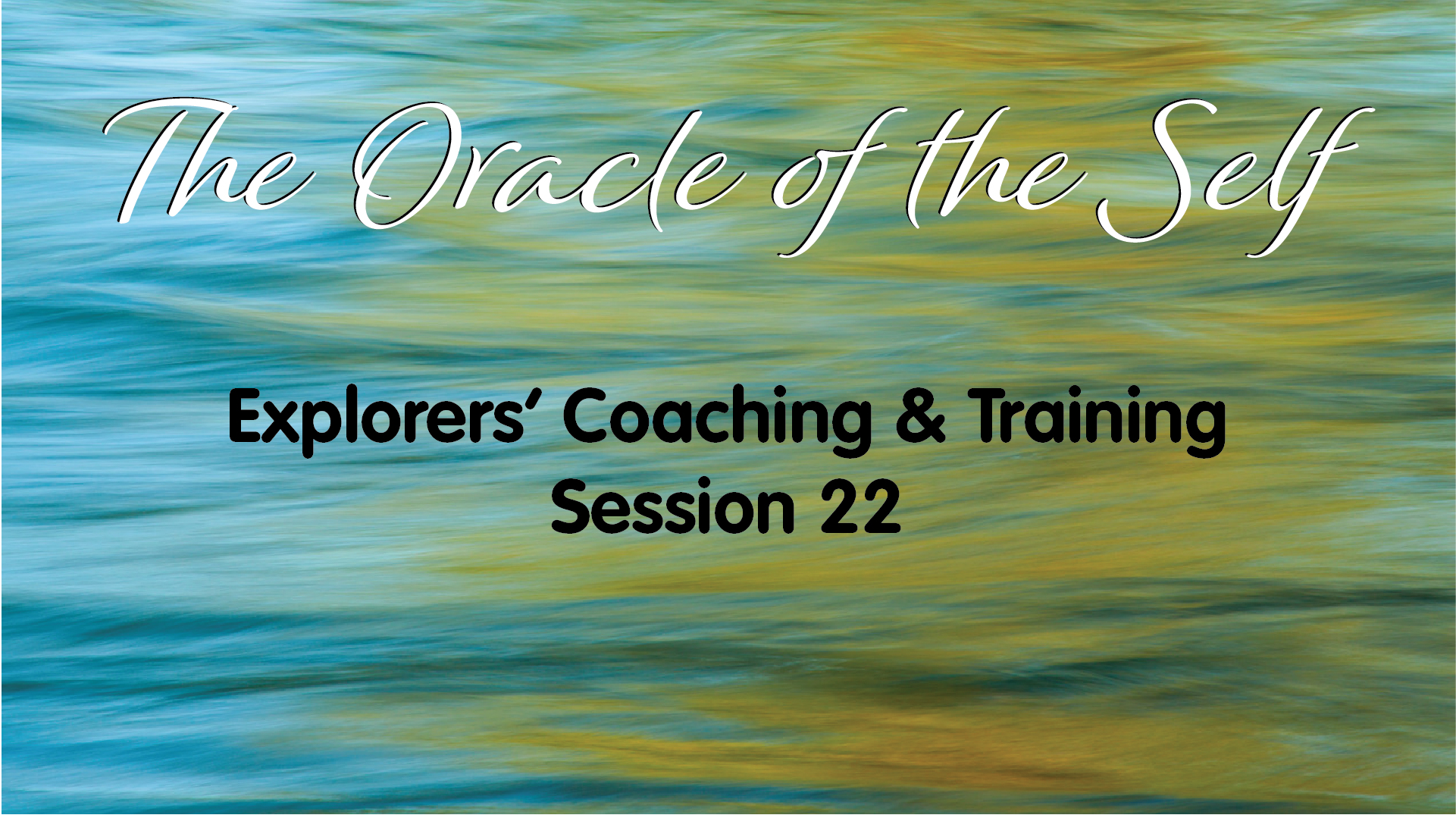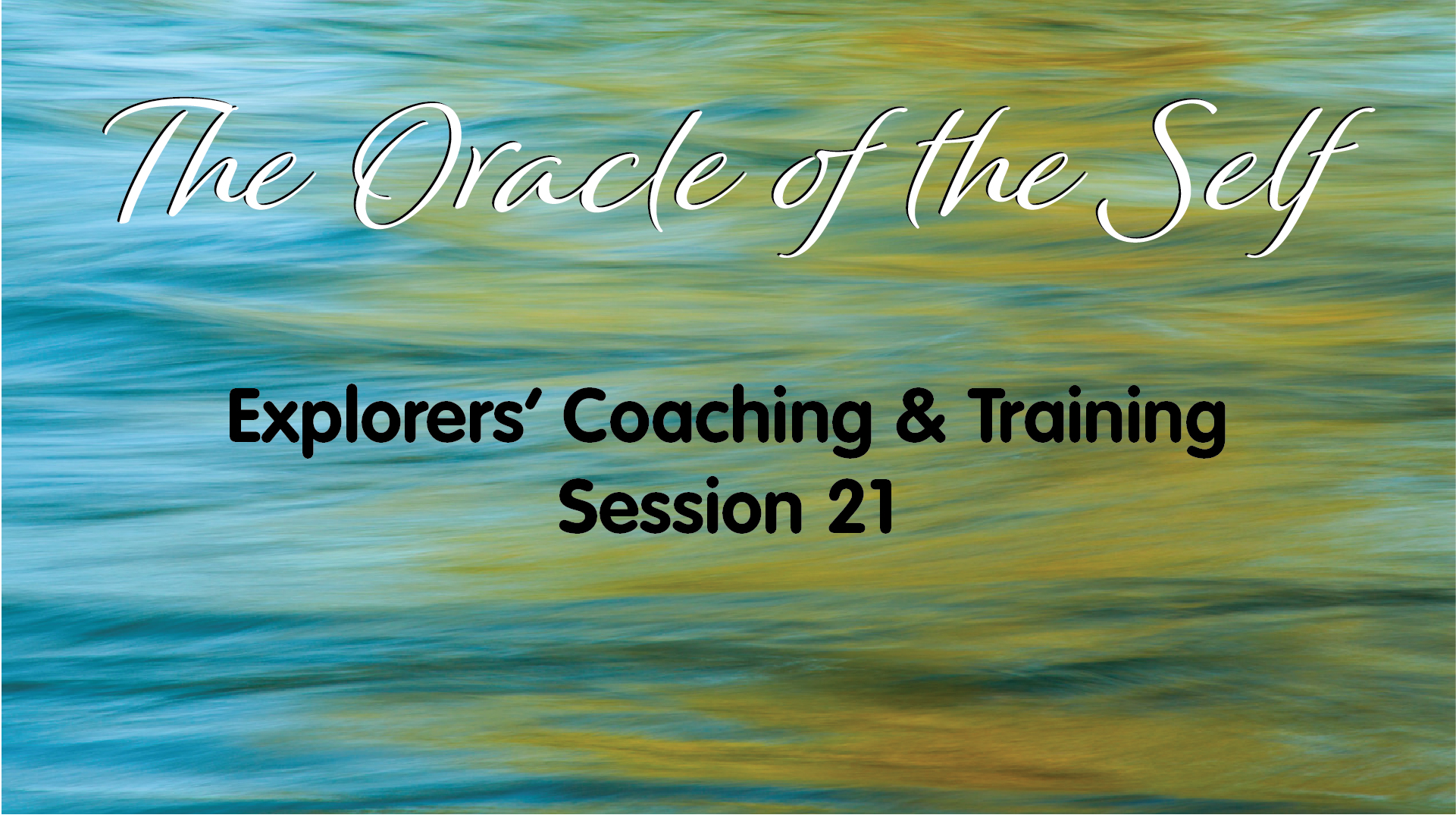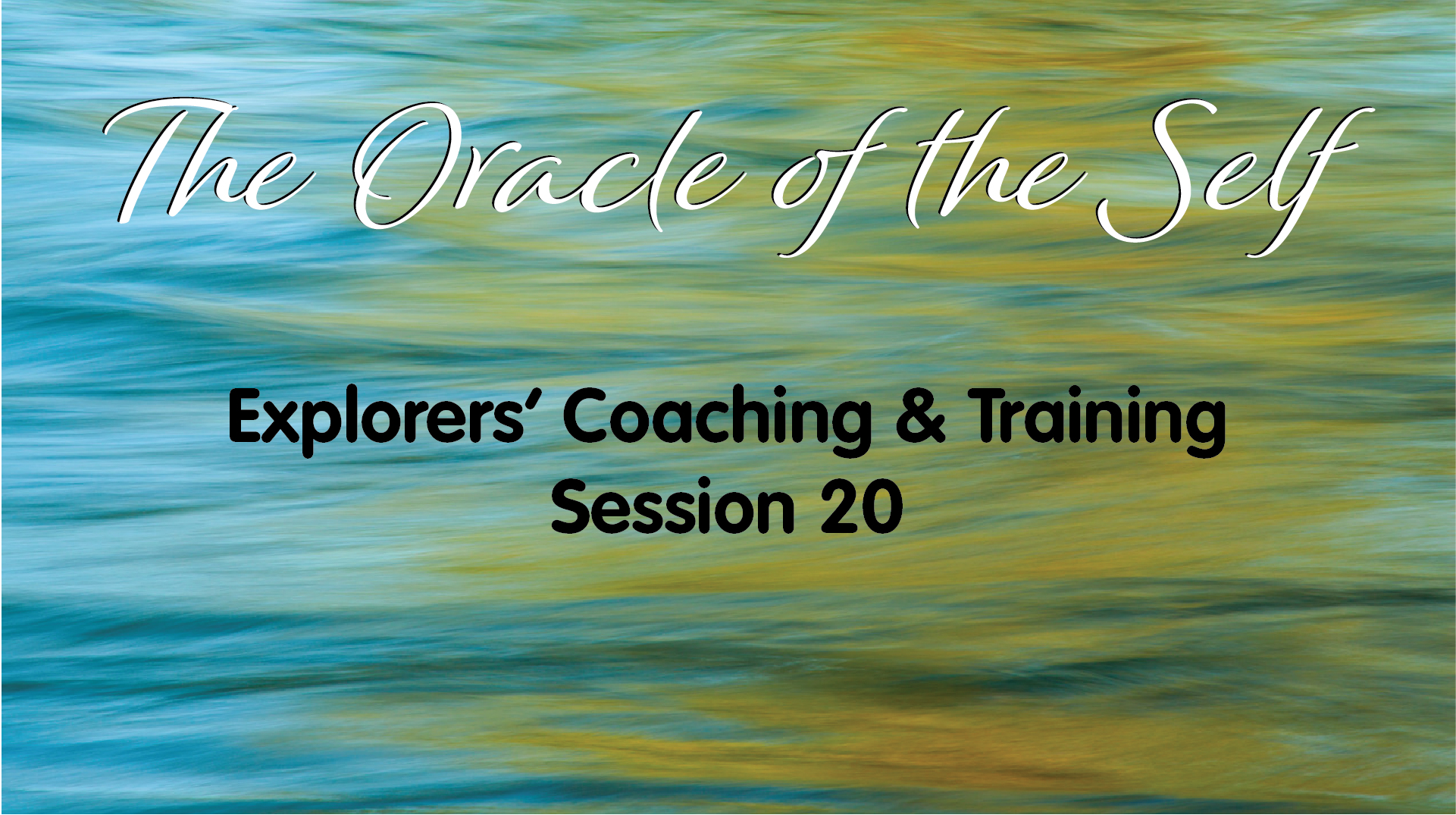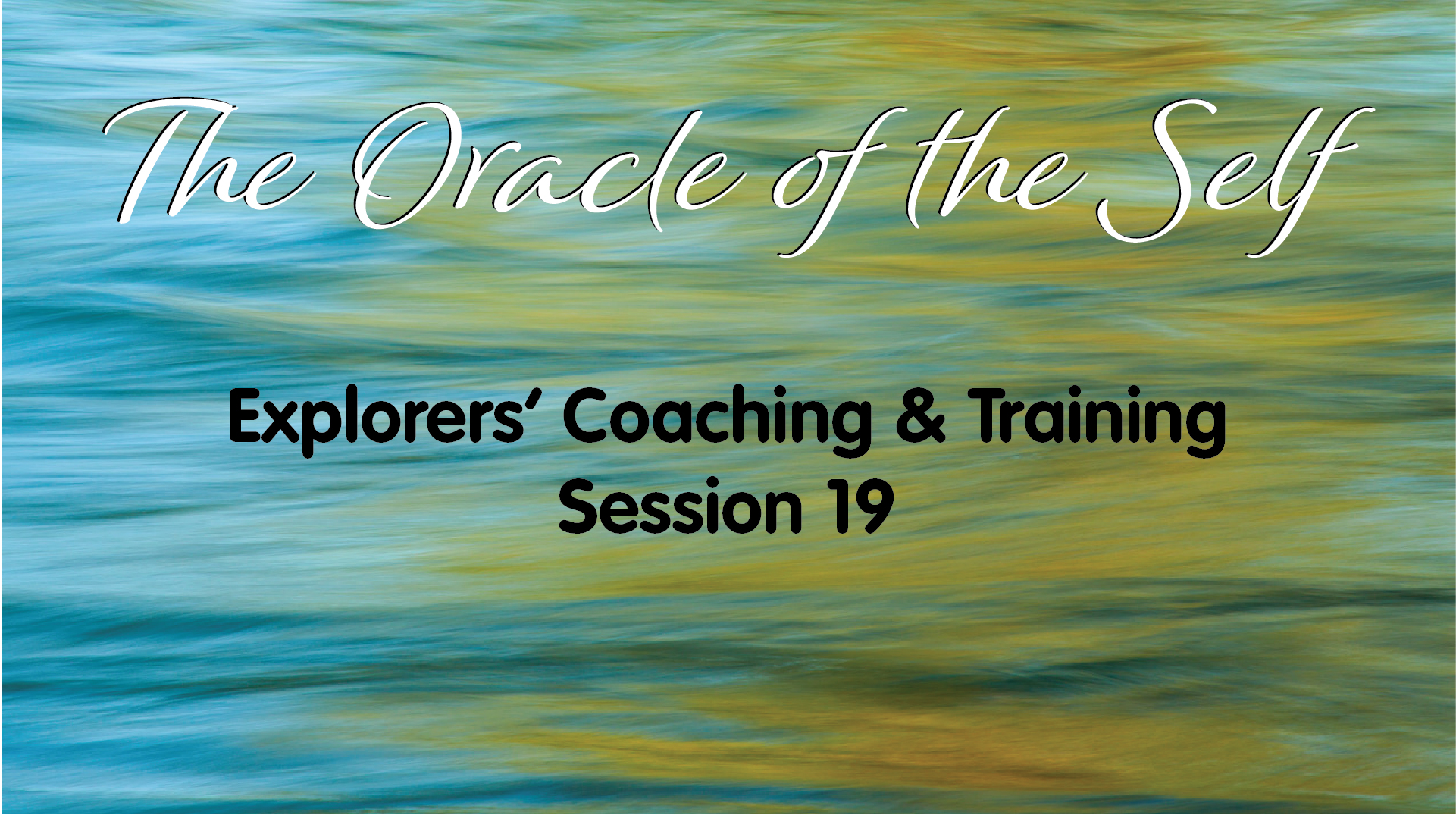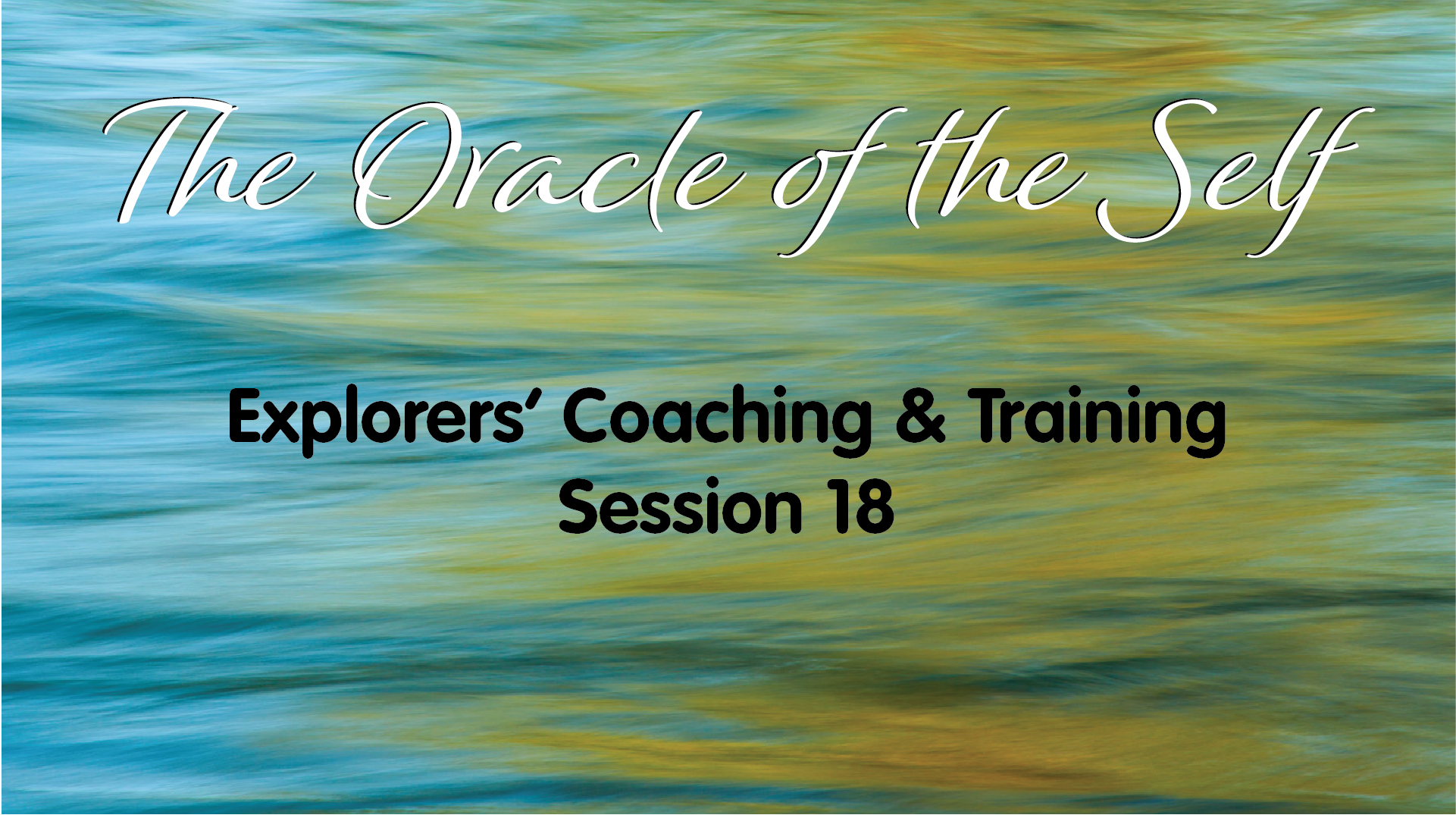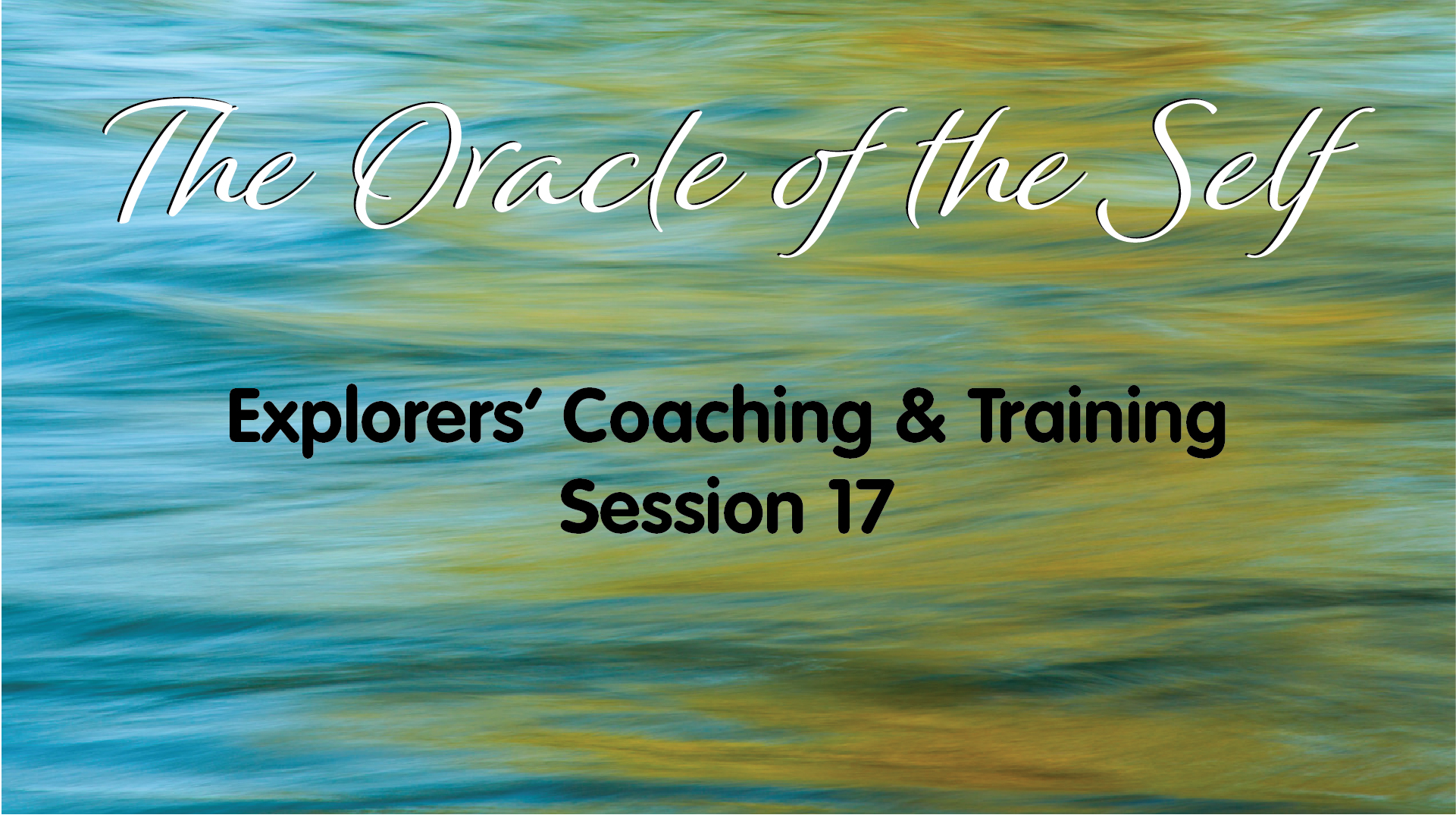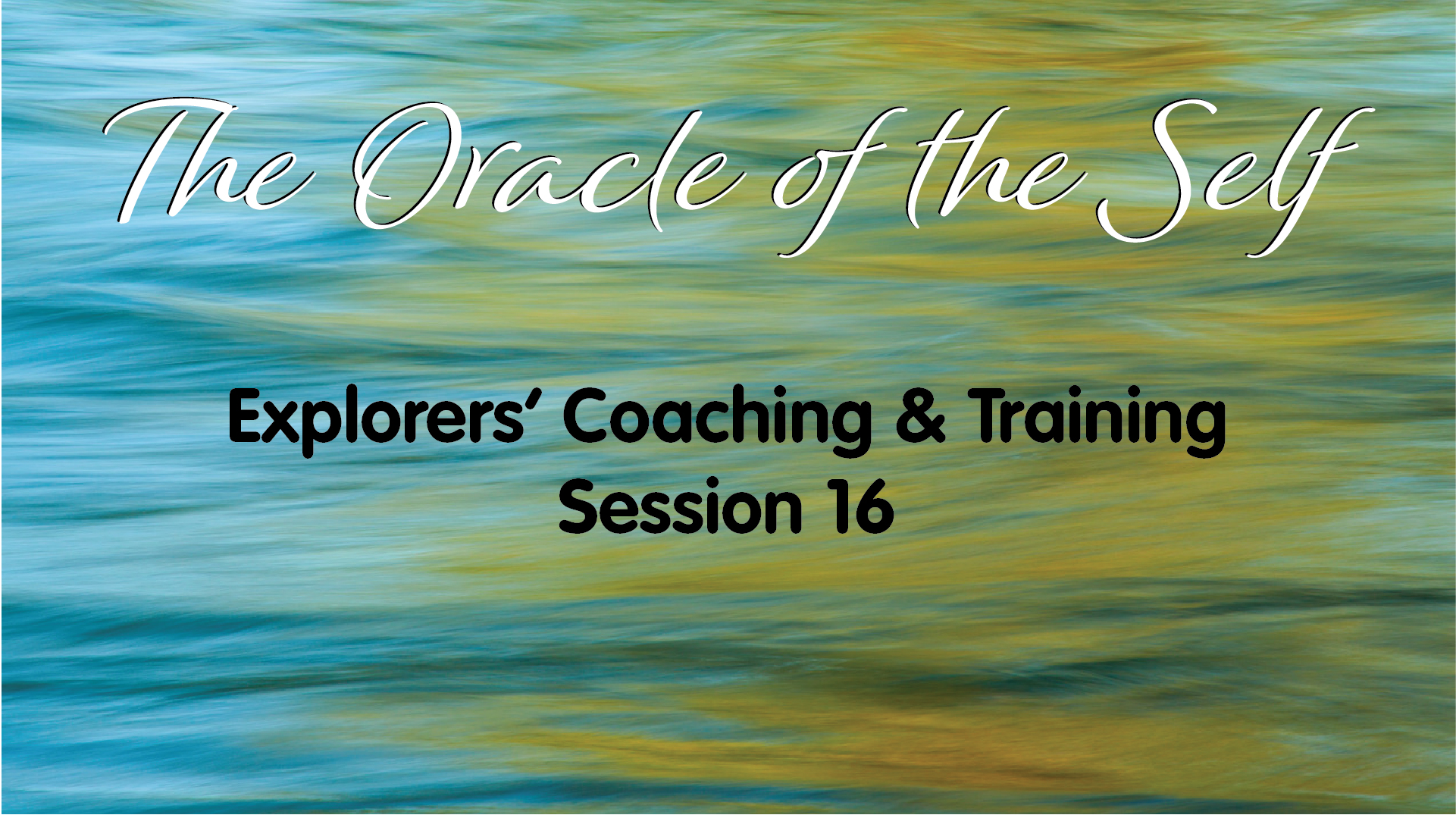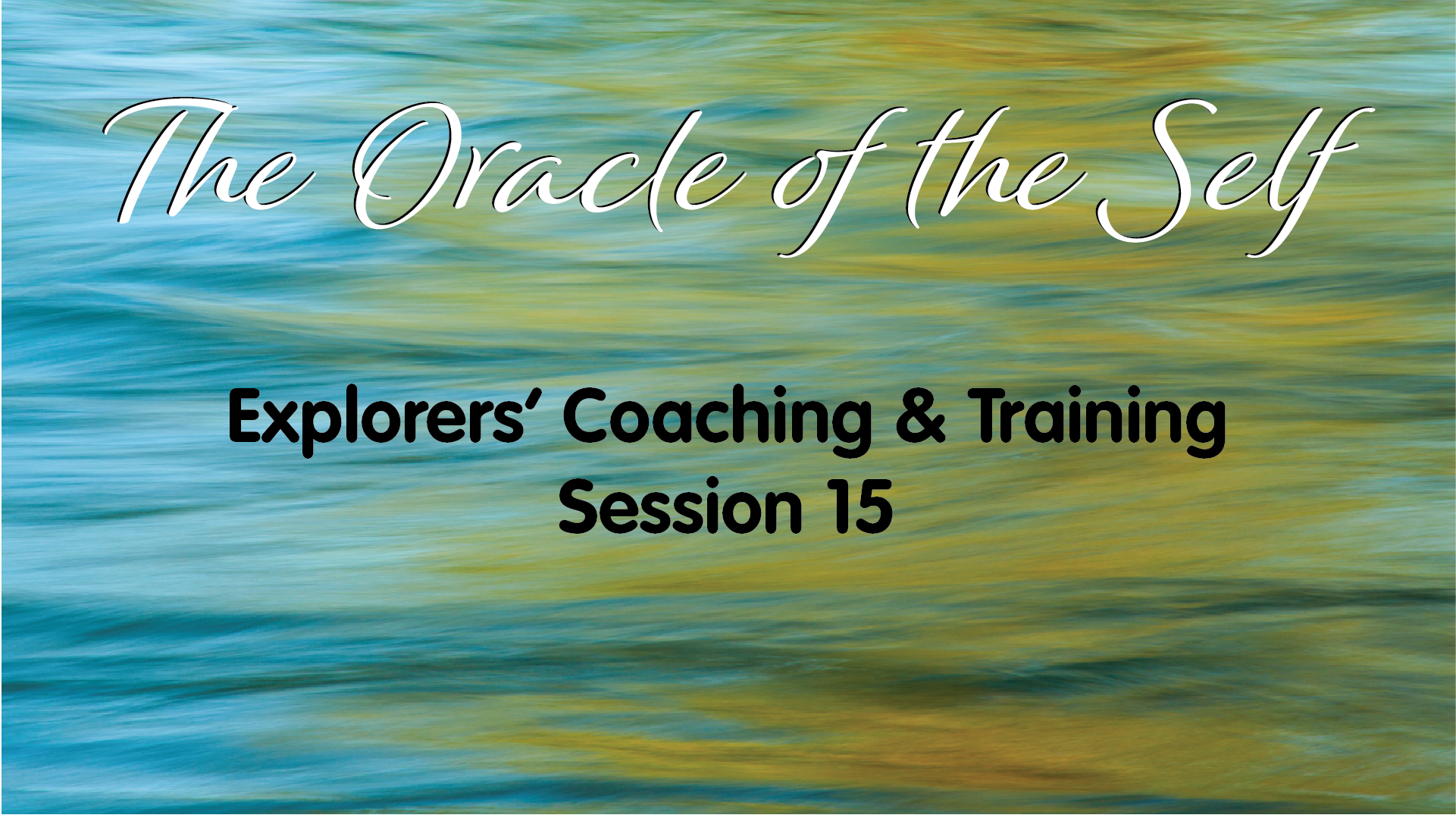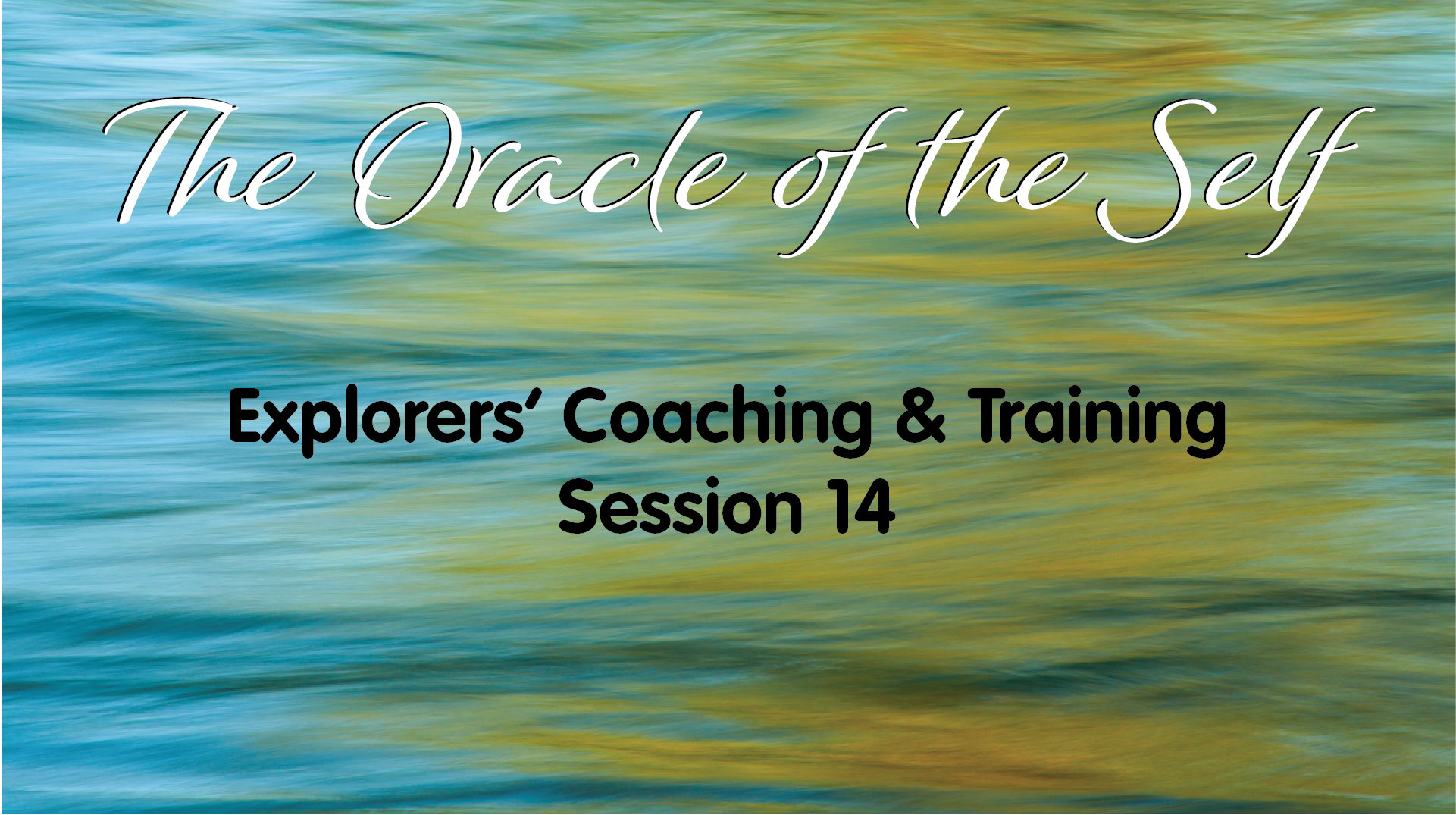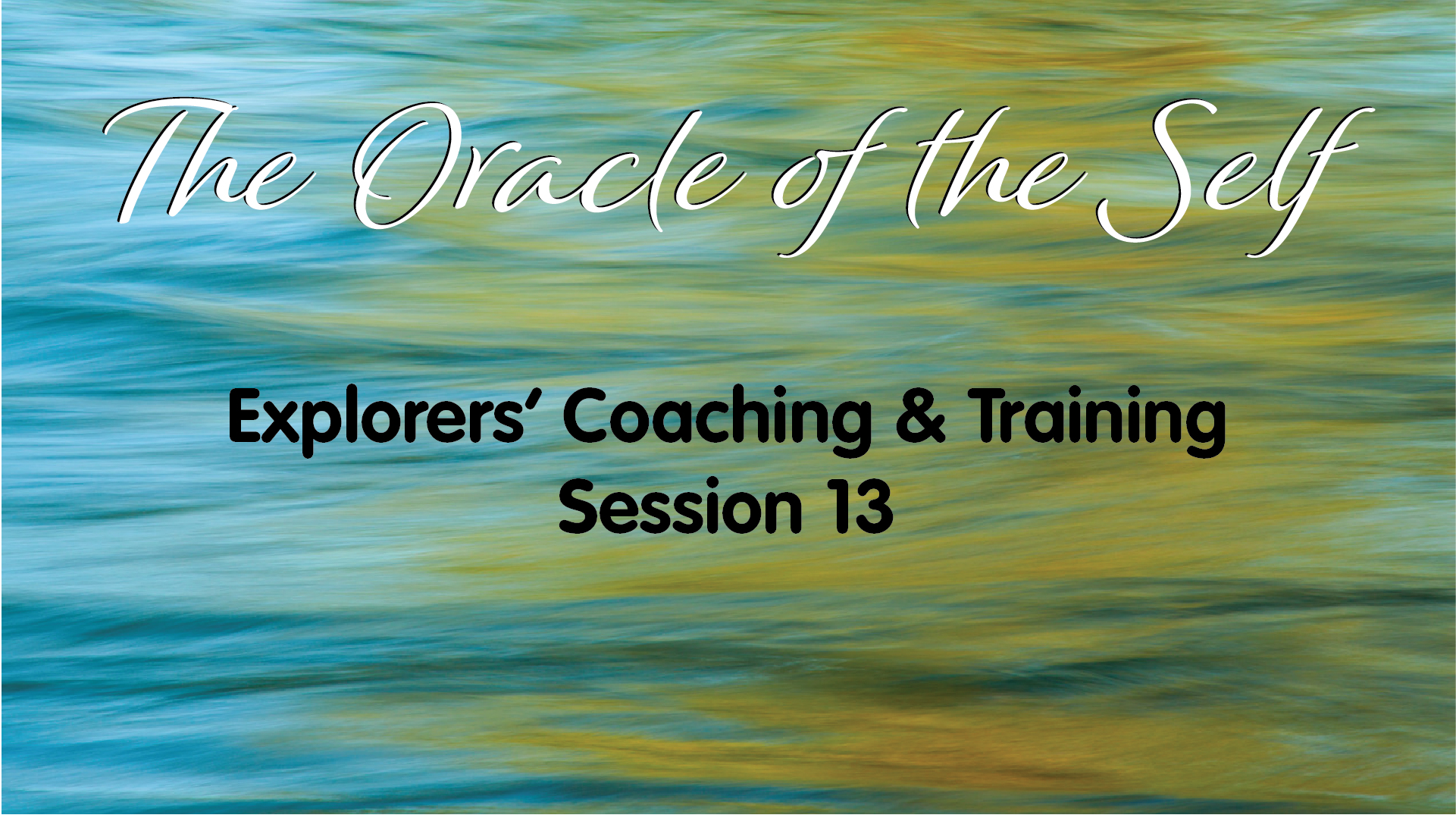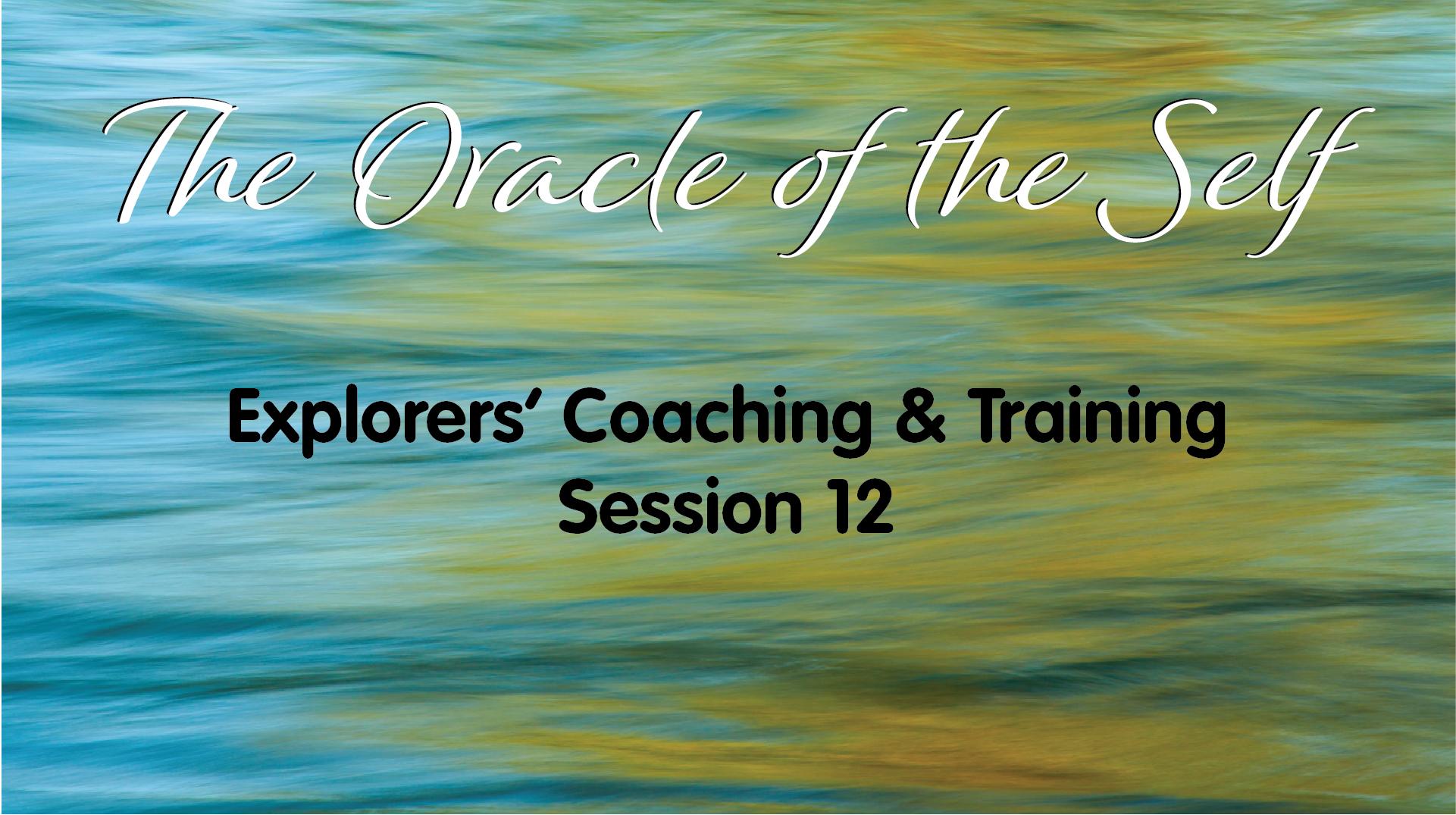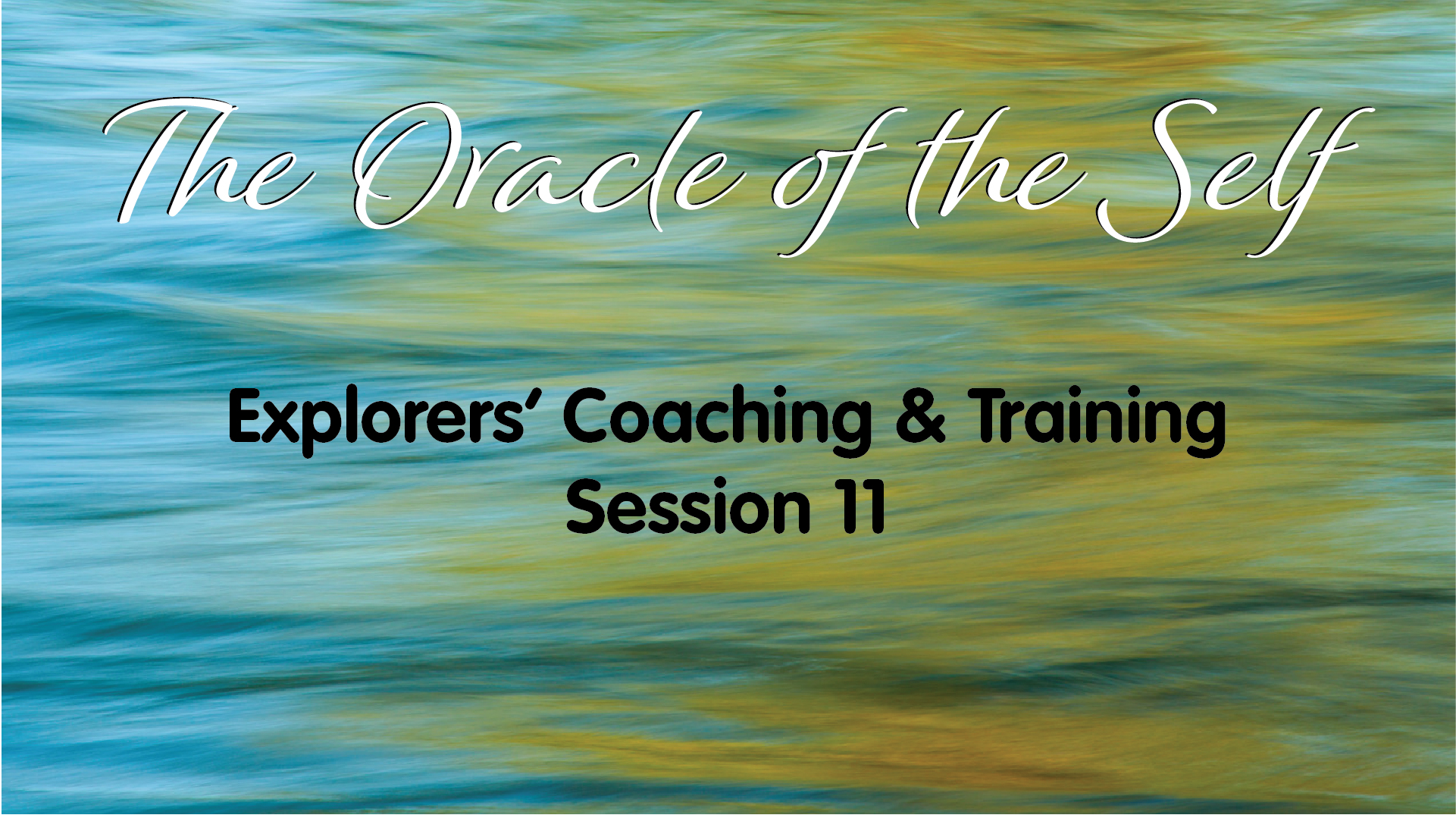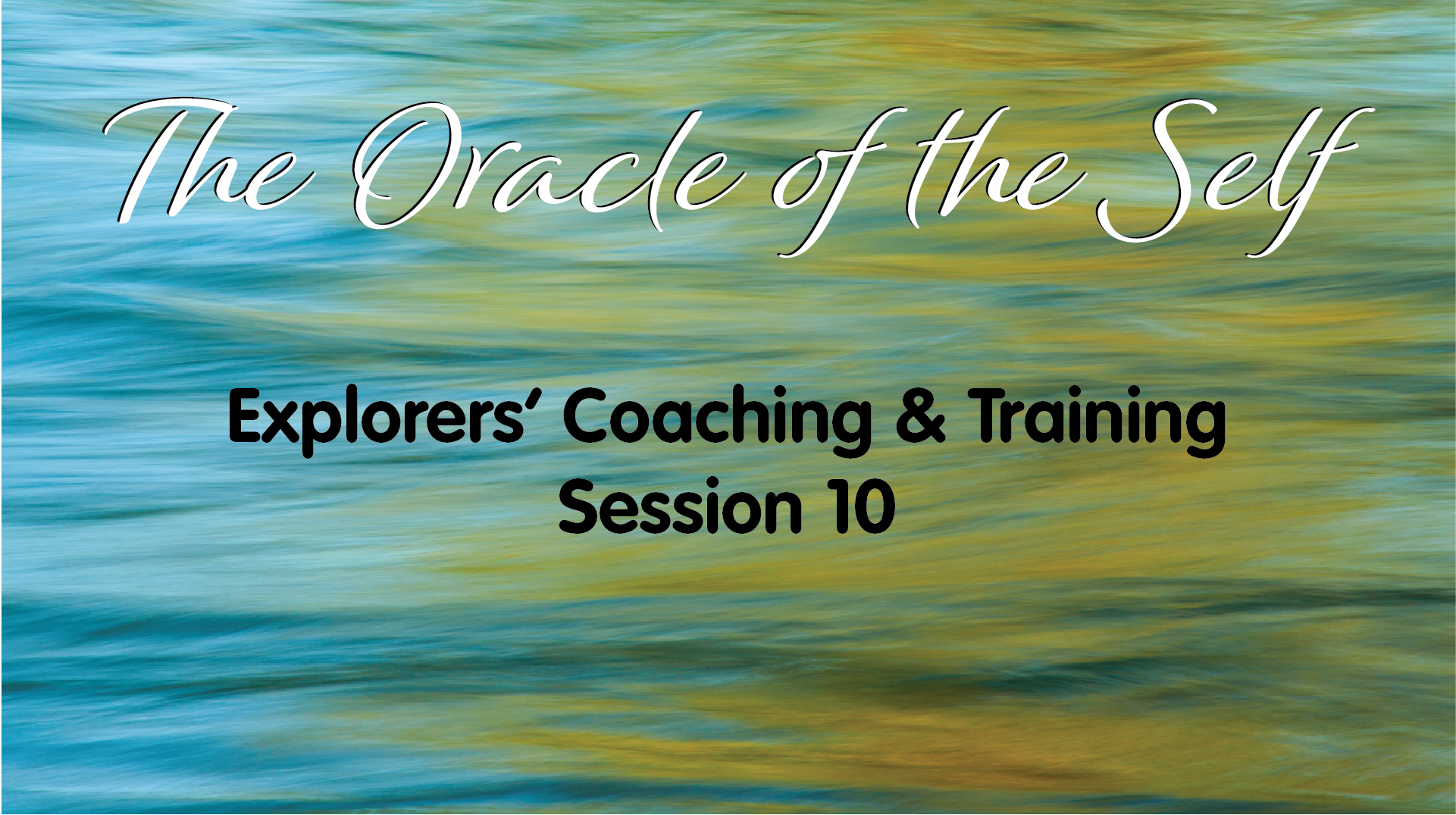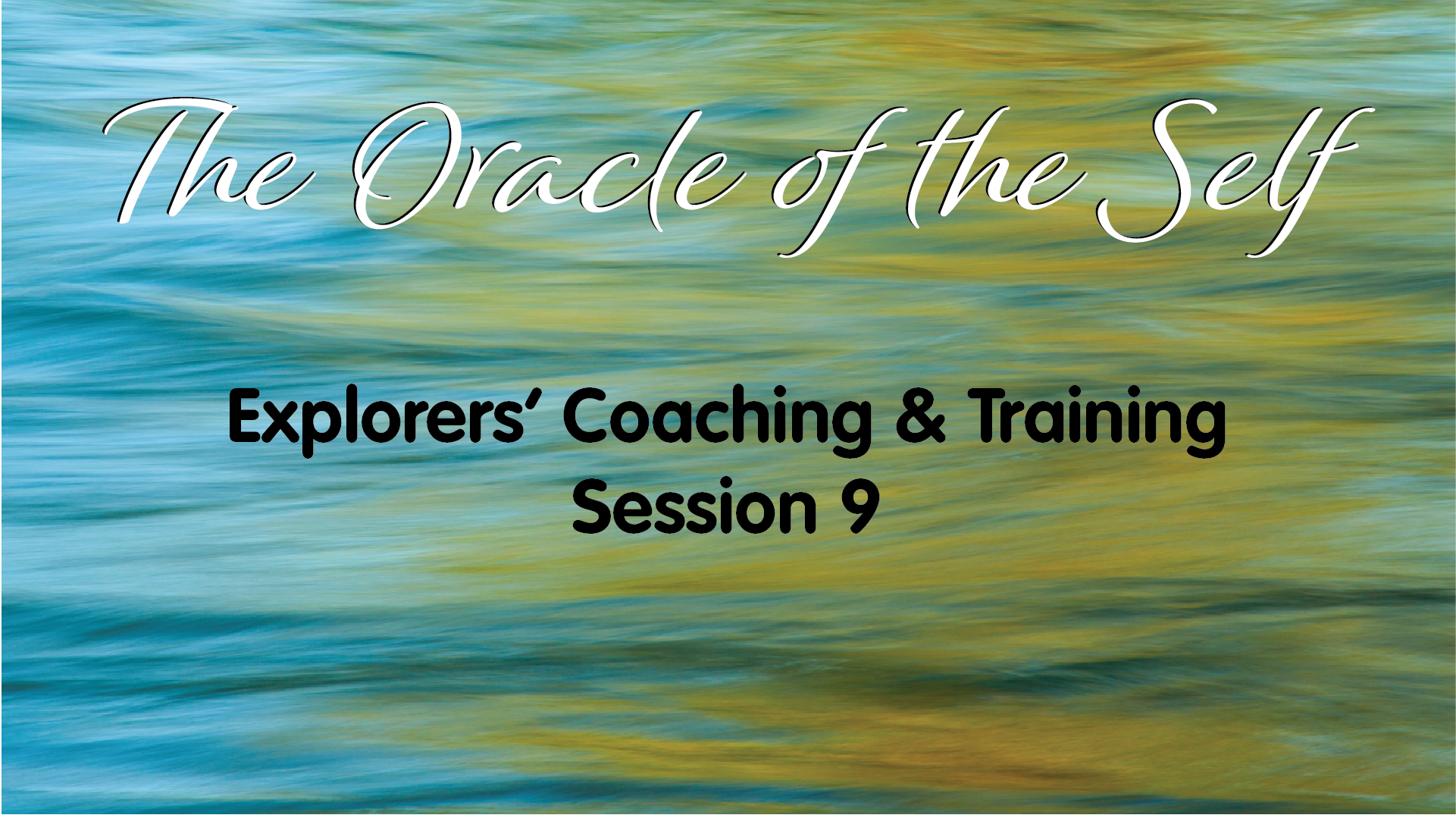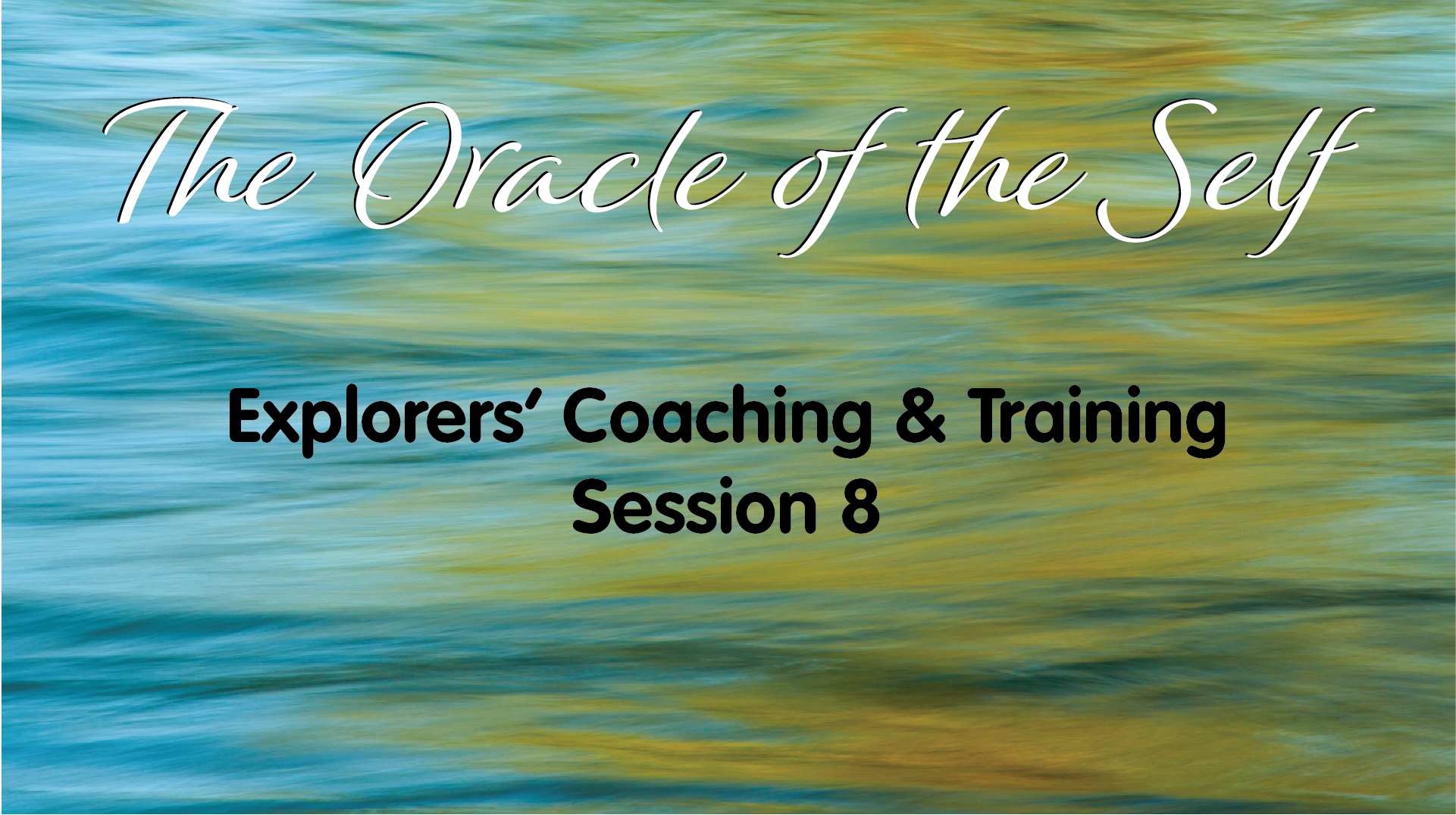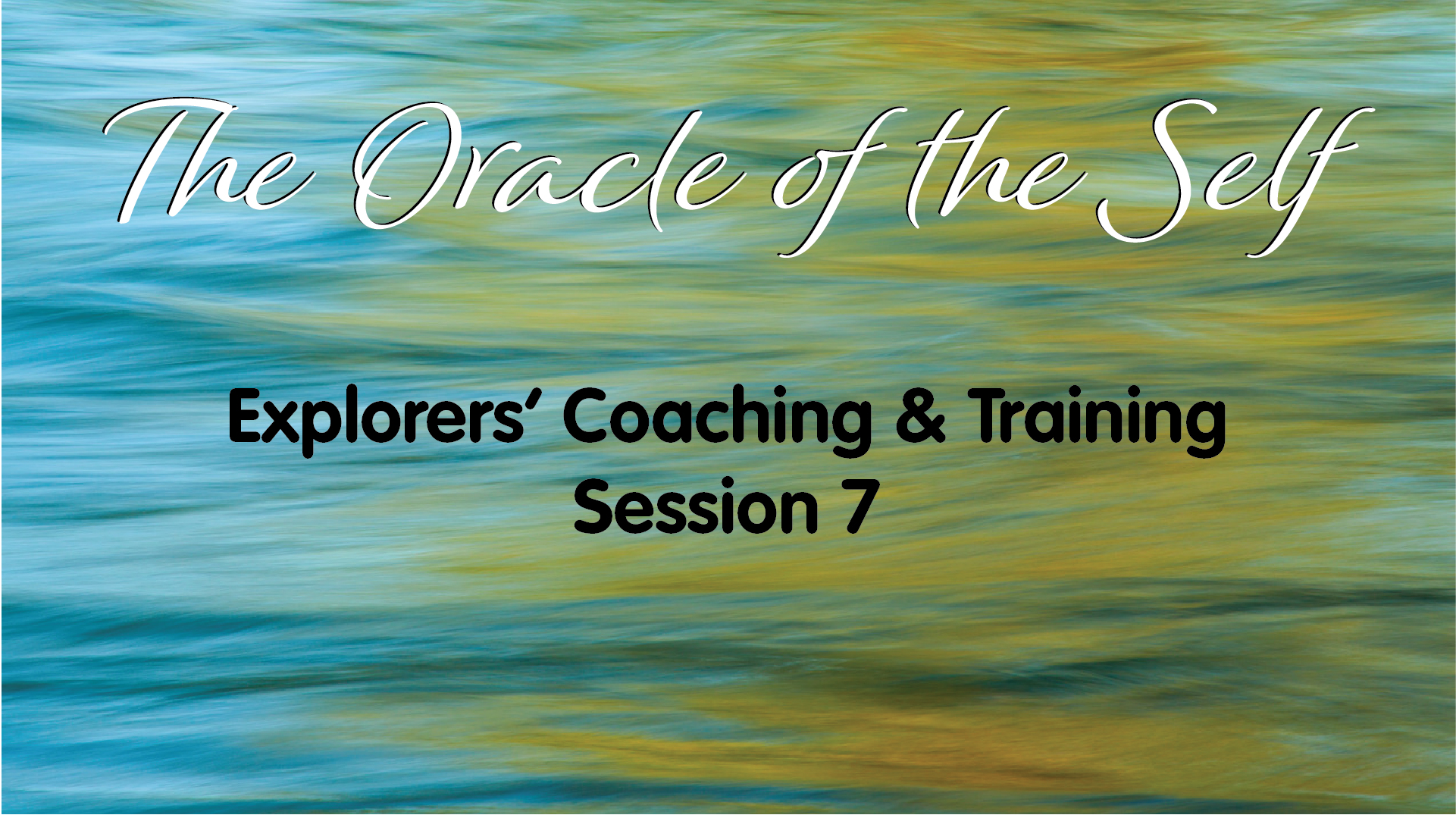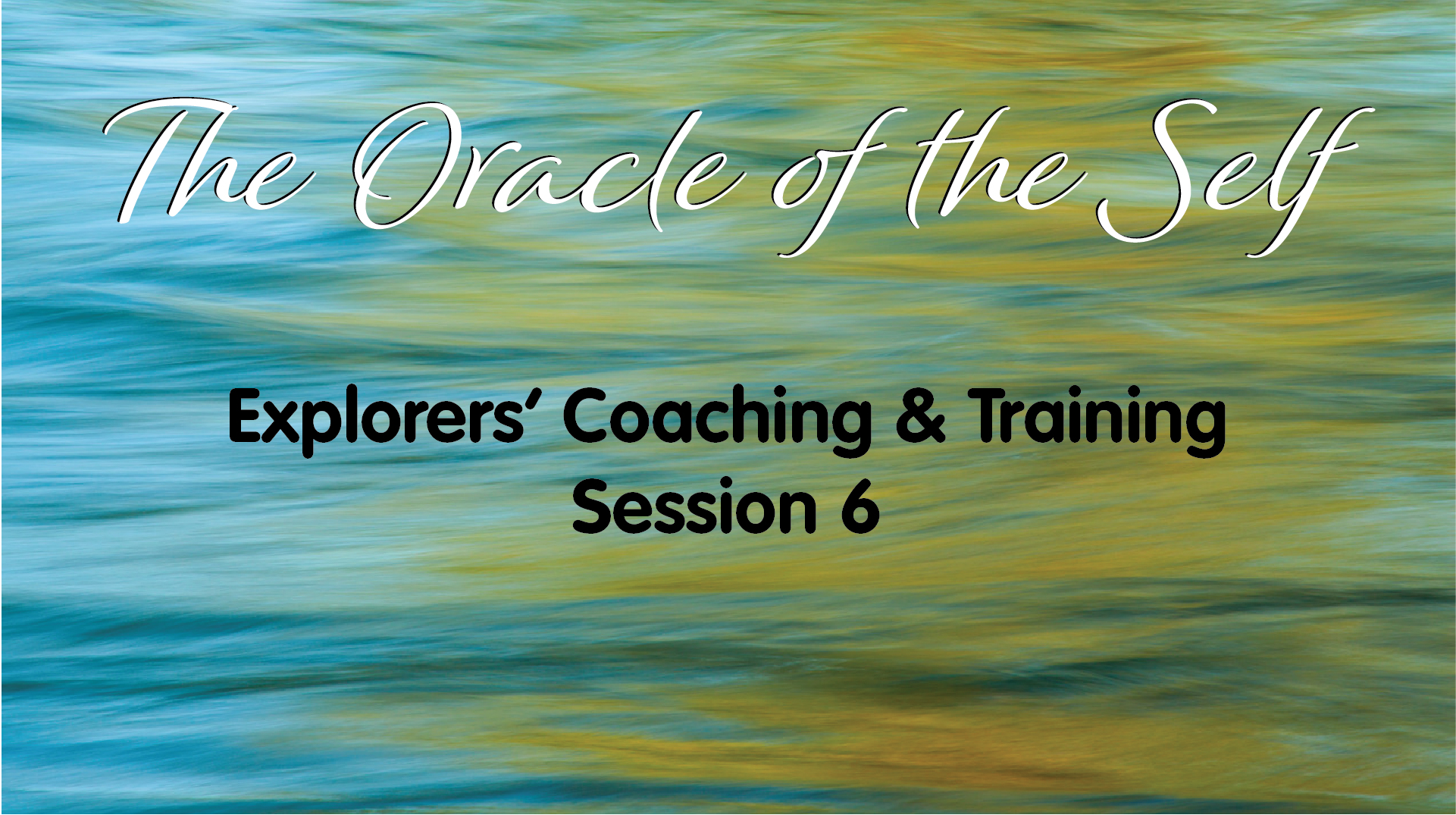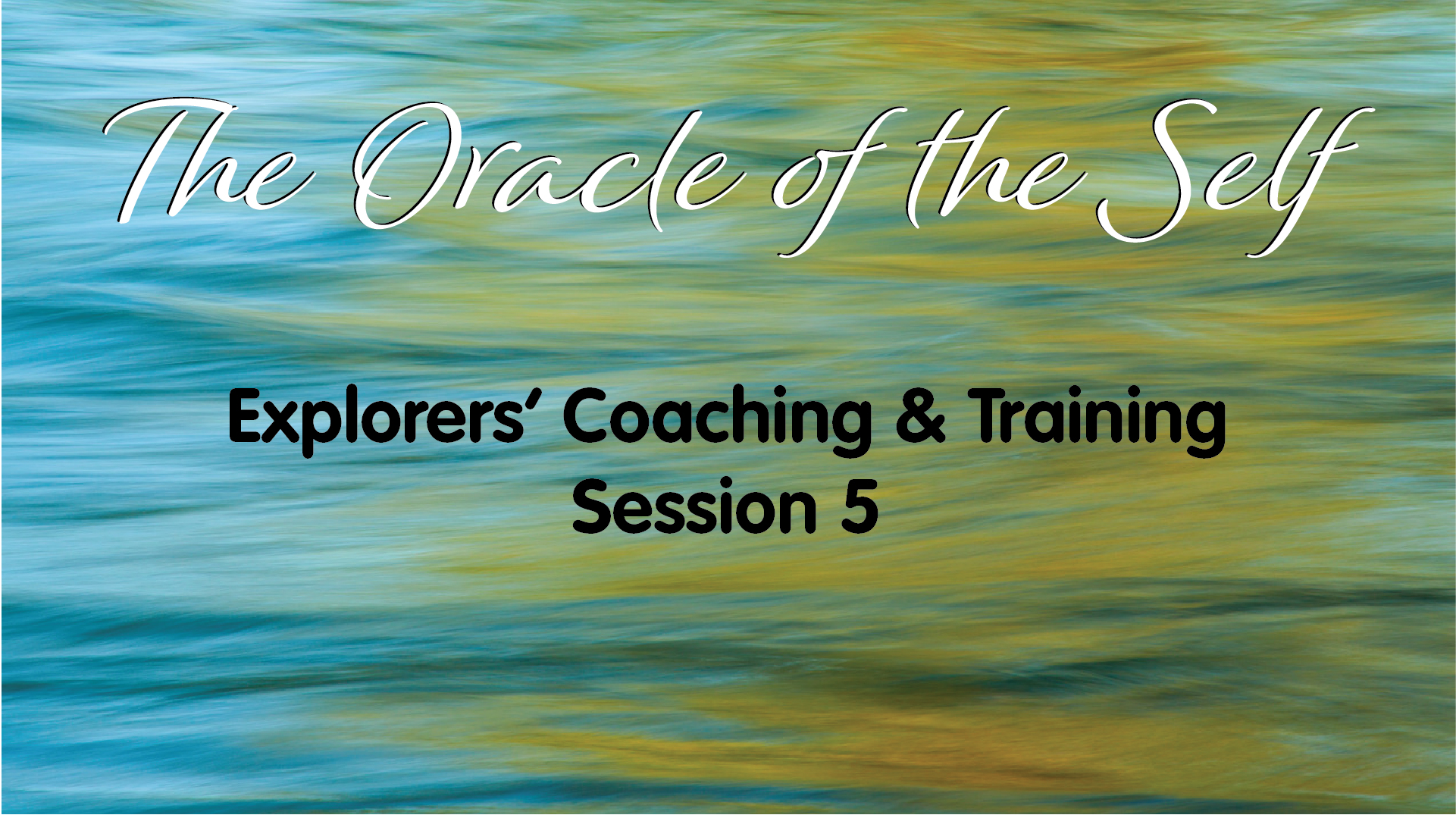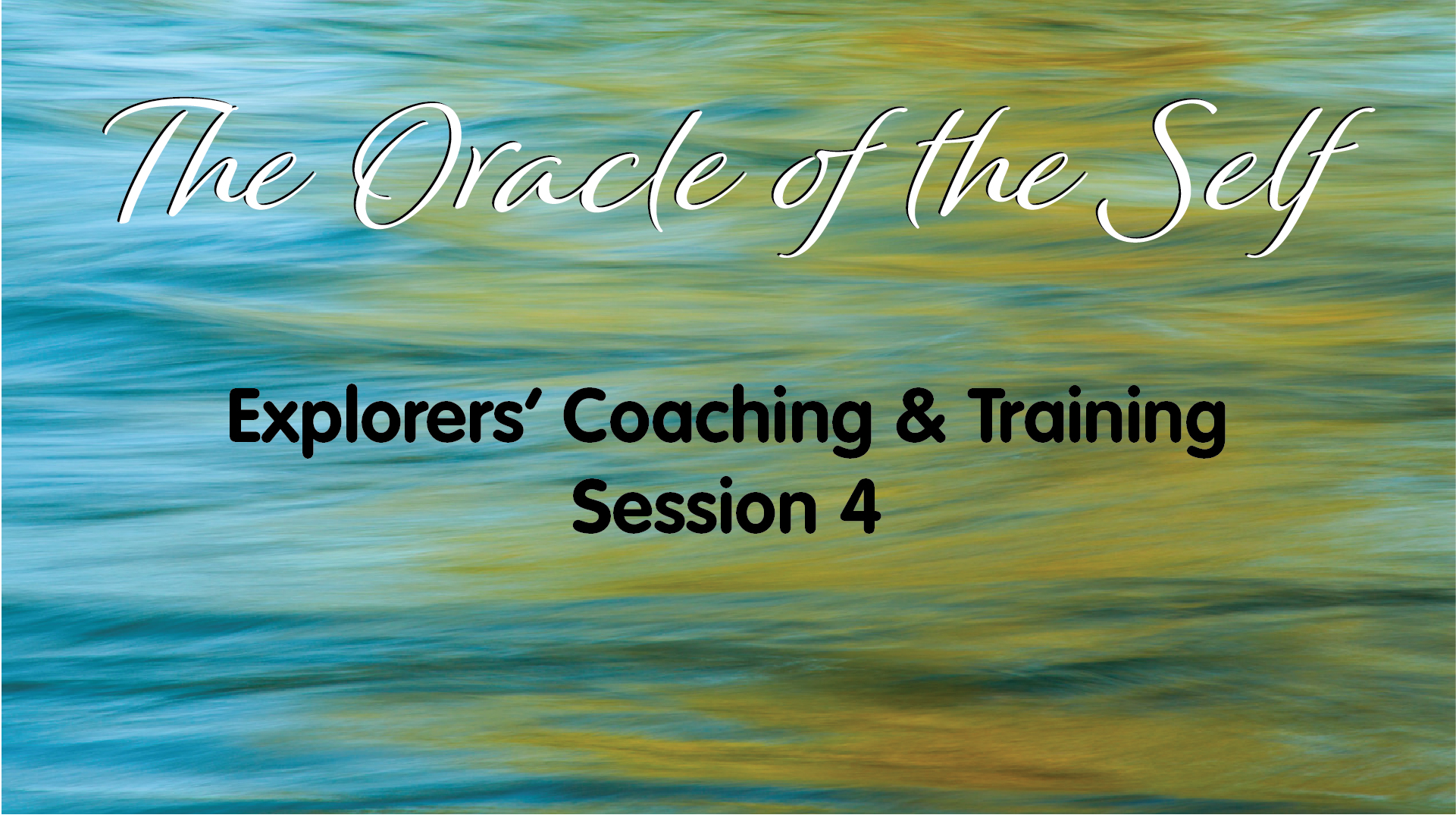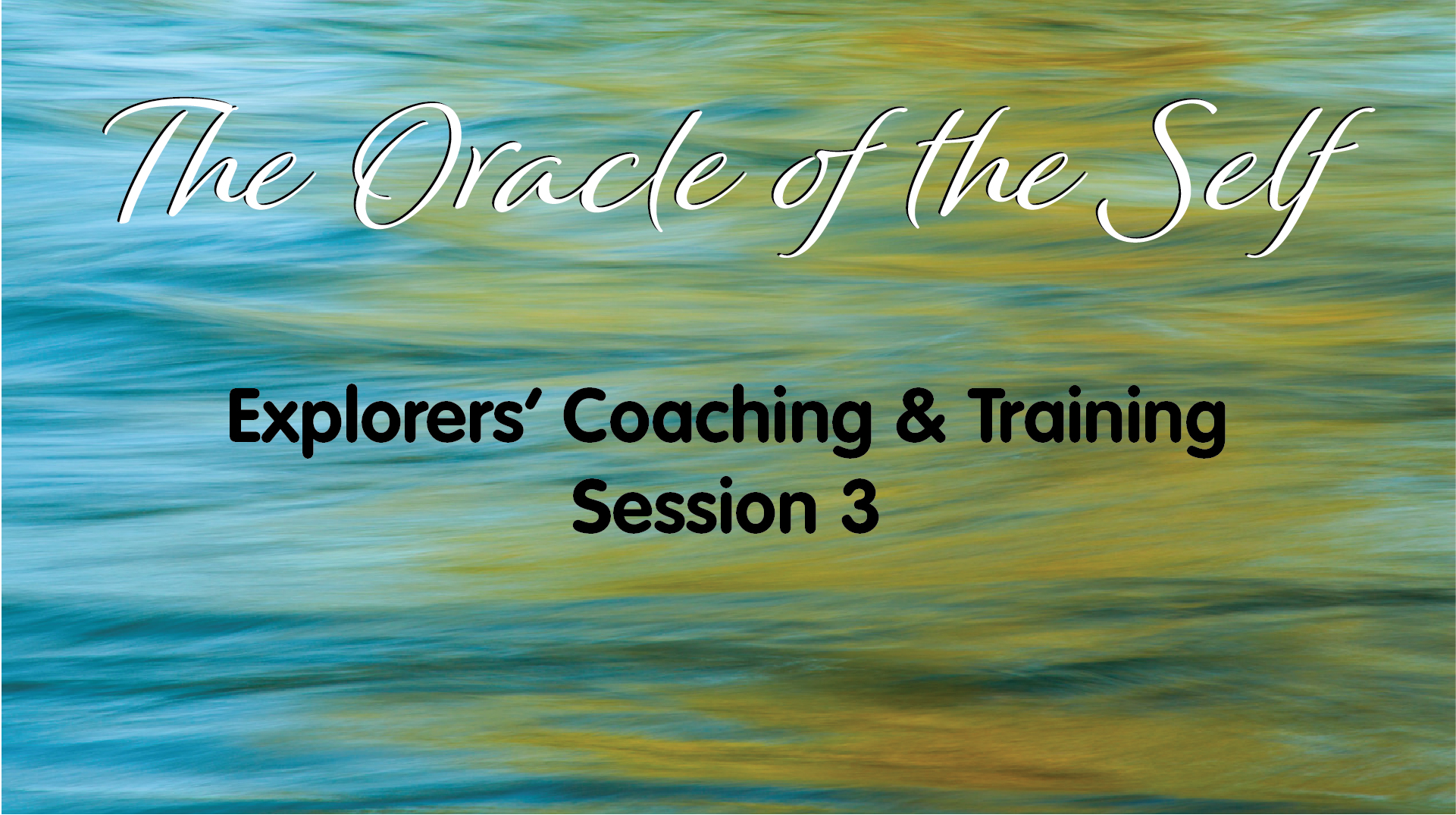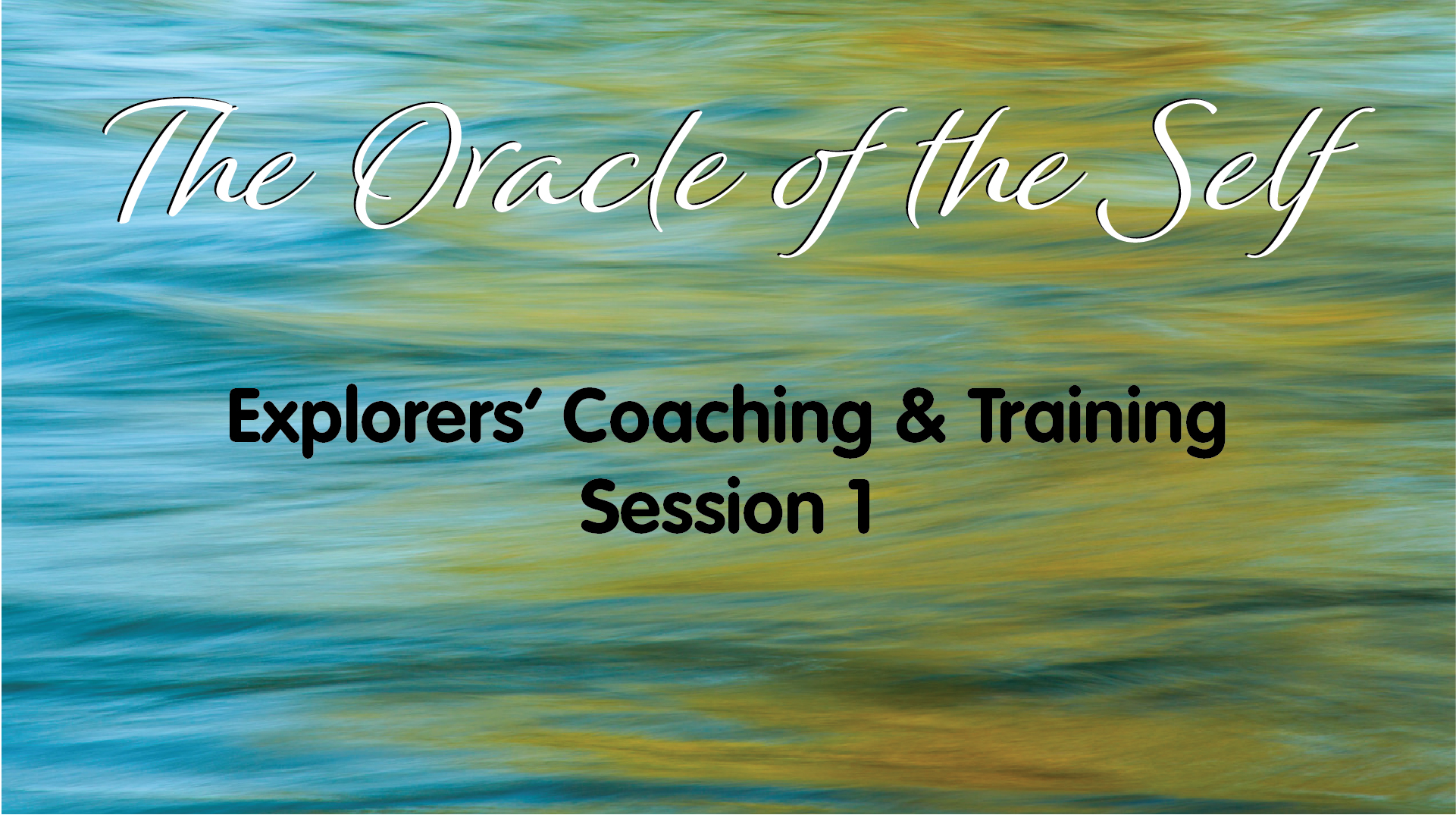
THE ORGANIC TRAINING SERIES
Here’s a series of 50 coaching/training sessions from the first year of our Oracle of the Self project, listed in reverse order. It is one of the resources you receive as a ChangeWorks® Community Member at the Explorer tier (and higher, of course!) What it was originally designed and intended to be and what it morphed into rather quickly was truly a night and day difference. Consider this an actual training program, organic in structure and delivery covering virtually everything there is to know about the ChangeGrid® and how to use it. Enjoy!!
This video and transcription cover the final coaching session in this series, led by T Falcon Napier. In it, he reviews key concepts from the entire Oracle of Self training program, including the ChangeGrid®, levels of Productive Tension, personality quadrants, engagement rings, and staying in one’s “Green Circle.” T checks participants’ understanding of each concept, explains how to apply them to various life situations, and requests feedback on which life situations the group would like to explore in the next series.
This description summarizes the coaching session led by T Falcon Napier on insights from a readiness and engagement profile recently completed by the attendees. Key topics covered include reviewing statistical analysis from the group profile to identify priorities, examining a sample personal change grid to demonstrate coaching applications, and outlining plans for an upcoming Oracle of the Self video series focused on self-improvement through weekly personalized ChangeGrid® activities.
This coaching session led by T Falcon Napier, for the Oracle of the Self group, focused on interpreting ChangeGrid® results from a readiness and engagement survey completed by attendees. Key topics covered include understanding ChangeGrid axes, layers showing response states and roles, interpreting group and individual results for activities like self-discovery, relationship toxicity, and caring detachment, and building skills in defining activities and using personal ChangeGrids. Action items address practicing ChangeGrid conversations, analyzing own results, and improving activity definitions.
This coaching session led by T Falcon Napier analyzes a change management profile he created to help participants improve self-awareness and Tension Management®. It covers core concepts like the path of self-discovery, toxic relationships, emotional regulation, tension levels, mission-critical tasks, and more. Action items include practicing detachment, evaluating biases, defending against manipulation, and crafting focused activity lists.
This coaching session led by T Falcon Napier covers a discussion on manipulation strategies and how to recognize them. Key topics include an overview of Noam Chomsky’s 10 strategies, analysis of their use in the ‘rigged election’ narrative, early warning signs when being manipulated, and additional techniques in religion/spirituality. Decisions made include educating people on manipulation tactics to help them protect themselves. No numerical data is provided. Action items focus on researching manipulation usage histories and transition approaches balancing various stakeholder interests.
This description summarizes the coaching session led by T Falcon Napier on key concepts of Tension Management® including the Nature of Change, ethics in influencing others, hard sell tactics, mystical manipulation, artificial resource limitation, fully integrated honesty, and strategies of social control and manipulation from Noam Chomsky. It analyzes how variables like logic, feasibility and tension dictate human behavior, with tension being the critical factor even overriding logic and feasibility. The talk also covers ethical considerations around employing pressure or deception when trying to influence others. Action items include researching evidence of instability, inequality, and lack of democracy in current systems, examining transition approaches balancing various stakeholder interests, and analyzing how psychological manipulation strategies manifest in our own thinking.
These details summarize the coaching session led by T Falcon Napier on the Nature of Change and Tension Management®. It covers the history of change models like the Yerkes-Dodson Law, how sensory arousal thresholds have increased with societal functionality, the role of tension in driving productivity and change, a decision matrix showing logic and resources aren’t enough without sufficient tension, and ethical considerations in manipulating tension. Key concepts include paradoxical stress responses at peak tension, threshold flexibility based on context, impulsive decisions under high tension, and dysfunction from excessive messaging bombardment today.
This account summarizes the coaching session led by T Falcon Napier discussing the relationship between tension and productivity, and how hitting an optimal ‘Threshold of Activation’ level of tension can trigger actions and changes. It covers the amount of tension or activity needed to get someone’s attention and prompt definitive action, cultural influences on tension tolerance, how dysfunction affects this dynamic, and the risk of delayed responses leading to collapse. Action items involve self-applying the tension analysis to identify reasons for disconnects between wanting and achieving change.
This account summarizes the coaching session led by T Falcon Napier on understanding dysfunction and the ‘progressive symptoms of dysfunction’ in society. It analyzes how denial leads to confusion, then dishonesty, self-centeredness, and finally moral/ethical deterioration, using examples like addiction and codependency. T explores the high prevalence of dysfunction, why it is important to recognize, and how it can impact attempts to help others or build relationships. Action items involve evaluating personal dysfunction levels across life areas and the impacts on client/friend selection and engagement.
This account summarizes the coaching session led by T Falcon Napier on understanding dysfunction and the ‘progressive symptoms of dysfunction’ in society. It analyzes how denial leads to confusion, then dishonesty, self-centeredness, and finally moral/ethical deterioration, using examples like addiction and codependency. T explores the high prevalence of dysfunction, why it is important to recognize, and how it can impact attempts to help others or build relationships. Action items involve evaluating personal dysfunction levels across life areas and the impacts on client/friend selection and engagement.
These details summarize the coaching session led by T Falcon Napier on the Nature of Change and people’s resistance to change. It discusses how people want to gain or maintain control through changes, outlining a ‘four blocker’ exercise to analyze what one hopes to gain/lose and not gain/lose from a change. The concepts of cascade credibility collapse, illusion of control, and value as emotional/intellectual relationship to options are also analyzed regarding change. Action items include using four blocker analysis before major changes, addressing employee resistance by showing control gains, and defining value from audience perspective.
This description summarizes the coaching session led by T Falcon Napier on analyzing factors influencing personal change and organizational productivity. Key topics include tension thresholds triggering action, cultural conditioning toward external management, protecting past benefits in any change, mapping urgency and importance to drive/tension, and the ideal of self-directed flow states. Decisions made relate to framing advice on increasing accountability, motivation, and focus. Numerical data covers productivity metrics and performance analysis. Takeaways emphasize dynamics around what drives change, upgrading tension levels, and balancing individual freedom with social needs. Action items target analyzing industries and cultures for autonomy support, researching transition approaches, and designing engagement initiatives leveraging flow states.
This description summarizes the coaching session led by T Falcon Napier on analyzing the central role of change in human experience and relationships. It examines how everyone tries influencing others’ behavior while also resisting changes themselves. People don’t resist change itself but losing control. The talk explores change dynamics using physics concepts like equilibrium and tension. Action items involve identifying control perceptions during influencing attempts.
These details summarize the coaching session led by T Falcon Napier on key concepts of Tension Management® including the central role of change, influence attempts in relationships, resistance stemming from control concerns rather than change itself, evaluating situational control gains/losses, and the innate human change process for addressing deficits in safety, security, happiness, or health.
These details summarize the coaching session led by T Falcon Napier on using the ChangeWorks® methodology and tools to improve personal skills in managing interpersonal tensions and conflicts. Key topics covered include exploring ideal locations on the ChangeGrid® for activities like setting boundaries, maintaining calm, and speaking truth; the importance of understanding audience values and boundaries; and plans for transitioning the sessions to be more application focused.
In this video, T Falcon Napier reviewed the Oracle of the Self organic training series, a 35-38-hour coaching session on personal growth topics, with the group. He discussed the layout of the library for accessing recordings, transcripts, and assessments. The main focus was creating a ChangeGrid® profile for dealing with difficult people, with example activities like managing emotions and limiting contact with toxic individuals. T had the group rate their ability and challenge level for each activity to plot them on the change grid, demonstrating how slight differences in coordinates impact energy and approach. He explained desired ratings represent the optimal mindset for effective performance and emphasized evaluating the wording of each activity to guide energy. The exercise aimed to build comfort using the ChangeGrid® for self-awareness.
During the training session led by T Falcon Napier, an overview of the Oracle of the Self project was presented, emphasizing the use of the membership system and YouTube videos to attract new members. It was suggested that ‘life situations’ addressing tension and challenges would likely attract more interest from new members than the initially proposed weekly ‘explorations of the week.’ An example draft titled “Dealing with Difficult People” was shared, containing 18 mission-critical activities, a 17-page article, a summary, and additional resources, with feedback requested on the content and approach. The session also included a brief discussion on the role of reframing questions in enabling change and growth, highlighting how they lead to different decisions, actions, and results.
During this coaching session with T Falcon Napier, participants discussed their homework, sharing examples of noticing immediate responses to situations. One participant journaled about transitioning between activities, noting triggers and the need for scheduled recentering through breathing or meditation. The discussion then focused on aging, highlighting how people become more selective with their time and attention as they age. T emphasized mindfulness and restorative practices to avoid burnout, discussing strategies for recognizing triggers and recentering. The session also covered why activities in the center of the ChangeGrid® are less common and ended with advice on dealing with negativity and setting boundaries.
In this coaching session T Falcon Napier discussed recognizing and managing responses to trigger events, using personal techniques like PowerPoint maneuvers to recenter, and an exercise on news about fires in Maui causing stress. Key takeaways included becoming aware of triggers and reactions, using techniques like simplifying and normalizing to recenter, and practicing personal routines for balance and control. The discussion also touched on the interaction between emotions and logic, cultures valuing rituals for humility and order, and the importance of making time for self-care.
In this session T Falcon Napier discusses in detail one volunteer participants ChangeGrid® assessment and activities regarding workouts with the group. They analyze where her tension levels are for each activity on the ChangeGrid and determine ideal locations for optimal performance and safety. T walks through how to interpret the ChangeGrid to gain insights and determine next steps. The group discusses how to balance increasing challenge while avoiding injury, especially for those over 50. They note how the body responds well to change and mixing up routines. T assigns homework for the group to plot their own activities on the ChangeGrid.
In this session T Falcon Napier covers empathic skills and coping strategies, noting the program’s shift towards spontaneous training focused on current events and questions. It discusses empaths, highlighting the importance of awareness and training to manage their abilities, as well as the continuum of empathic skills present in most people’s daily lives. The concept of “metamorphs,” individuals who can get stuck in others’ emotions, is discussed as problematic, emphasizing the need for maintaining a sense of self. The discussion also addresses setting boundaries and understanding motivations behind sharing stories or advice, emphasizing the importance of avoiding perpetuating dramatics or “hijacking” others’ experiences. Overall, the importance of monitoring messages, both received and shared, is highlighted, including evaluating one’s own thoughts to maintain a balance between the self and others’ experiences and beliefs.
In this session T Falcon Napier discussed an article on empathy, exploring its different levels and forms, including metamorphic empathy. It emphasized the importance of awareness and practice in managing empathy to avoid negative outcomes like emotional overload or manipulation. The concepts of caring detachment and the observer mentality were introduced as useful skills for empaths. The discussion also briefly touched on the relationship between capitalism and compassion, noting that the outcome depends on those implementing capitalism. Overall, the key takeaway is that empathy is a skill that requires effort and awareness to develop and manage, and with practice, it can be a gift, but without it, it may lead to undesirable outcomes.
In this session T Falcon Napier discusses how to deal with stress and anxiety in daily life with the framework of the Oracle of the Self. The key takeaways include: detach yourself from the situation, get to the centered spot in the ChangeGrid®, turn on your logic instead of being hijacked by emotions, question the underlying motivation and causes of the situation, add resources to handle challenges, reflect on your responses and reactions to gain a better understanding of yourself, confront the person or speak up when necessary to push for change. The article provides many examples from daily life to illustrate how to apply these techniques in practice. The key point is to avoid being extreme and reactive but stay balanced and logical.
During this conversation T Falcon Napier delves into the nature of democracy in the United States, with participants debating whether it is currently an illusion. Some argue that the country’s democracy is being tested, while others maintain that the US is a representative republic rather than a direct democracy, with power held by elected representatives. They discuss the balance of power between the federal government and states, likening the US to 50 loosely connected countries under a limited federal government. The discussion extends to immigrants’ experiences in the US, highlighting the importance of recognizing cultural differences and commonalities. Participants stress the need to challenge one’s own beliefs and appreciate diverse perspectives to resolve conflicts. Overall, the conversation covers democracy, political systems, cultural differences, common ground, identity, and critical thinking, drawing on personal experiences to address broader social issues.
In this session T Falcon Napier reminds participants of the previous session’s discussion on addressing issues stemming from inability or unwillingness, noting that unwillingness often stems from lack of ability or awareness. He then introduces a ‘skill-will matrix’ to help leaders find the right approach for individuals based on their skill and willingness levels. They also touch on the concept of ‘sustainable mediocrity,’ which arises from overreliance on inefficient methods, and ‘unsuitability,’ where certain goals or methods may be unsuitable for individuals or situations. The speaker emphasizes the importance of taking on the necessary role (manager, trainer, leader, counselor) to address issues, and concludes by thanking participants and expressing hope that discussions will help tackle real-world challenges.
In this session T Falcon Napier discusses the four root causes of human struggle and failure: unawareness, inability, unwillingness, and unsuitability. He emphasizes the importance of continuous improvement and revisiting ability issues. The session also explores the issue of unwillingness in individuals and how it may be related to burnout. The importance of being aware of one’s limitations and setting boundaries is emphasized. The conversation also touches on the importance of having boundaries and having open, candid discussions with loved ones. The text concludes with a discussion on the belief systems that hold people back and the need to regularly examine them. The speaker discusses their tendency to let go of relationships easily and prioritize self-preservation. The session ends with a suggestion to continue the discussion in the next meeting.
In this session T Falcon Napier discusses the four aspects of control and how they can be used to make decisions. He emphasizes the importance of considering both what you want to gain and what you don’t want to lose, as well as the potential costs of a decision. He also discusses the concept of deal breakers with and how they can cause someone to stop investing in a situation. T then asked the group if they have thought about this concept and if they have any experiences to share. The conversation then shifts to the topic of emotional expression and how it relates to the ChangeGrid®. They discuss the importance of being selective in methods employed to maintain a brand, and the significance of customer service in building loyalty. It also delves into identifying obstacles to achieving desired outcomes, which can be categorized into four types: awareness, ability, willingness, and suitability. Attendees express their enjoyment of the session.
In this session T Falcon Napier discusses the concept of control and the importance of detachment in human development. T introduces the four aspects of control and emphasizes the role of tension in motivating change. The text also explores the relationship between productivity and the ChangeGrid®, with maximum productivity occurring in the sweet spot between tension and drive. The author highlights the issue of apathy in organizations and the need for effective management and leadership to prevent sustainable mediocrity. This session also discusses the four root causes of human struggle and failure, with a focus on the impact of self-management on personal success.
In this session T Falcon Napier discusses the importance of understanding the current situation, desired situation, obstacles, and solutions in decision making. He emphasizes the need to identify and eliminate obstacles before focusing on solutions. He believes that making the right decisions are key to achieving desired outcomes and suggests making room for emotions and intuition in decision-making processes. The discussion also highlights the importance of identifying what one wants to gain and lose in a situation and recognizing potential deal breakers.
In this session T Falcon Napier discusses the ChangeGrid® and its use in sales and training, emphasizing the importance of knowing where someone is on the grid before using any maneuvers. It also touches on the difference between transactional and transformational selling and the importance of building relationships with clients. He discusses Outgrid maneuvers, which involve taking risks and pushing oneself out of their comfort zone and explains how different levels of tension are expressed through physical postures, tone of voice, and attire. The text also discusses how people’s physical appearance and behavior can indicate where they are on the ChangeGrid®, and the importance of managing our attention and being aware of our physical, mental, and emotional state. The text also highlights the psychology behind video game addiction and the importance of targeting the right audience. Finally, the session touches on the challenges of marketing and the importance of meeting people where they are.
In this session T Falcon Napier discusses the evolution of the ChangeGrid® and the importance of identifying and addressing negative expressions of behavior to engage employees and improve leadership. He also discusses the different types of engagement strategies used by hair salons and stylists, and the importance of precision and continuity in maintaining a consistent appearance. He emphasizes the need for analytical energy to make efficient decisions and suggests that consultants who can use precision elements of the ChangeGrid can prove return on investment. The text also discusses ChangeGrid maneuvers, the different roles of leadership, and the importance of creating an environment of pride and focusing on a singular outcome. It touches on the concept of the Oracle of the Self and the importance of practicing caring detachment to move others towards the green circle or center of the ChangeGrid.
Led by T Falcon Napier, the call focused on the ChangeGrid® engagement ring, particularly exploring awareness, intention, and engagement. The discussion began with a review of the heartline, emphasizing its role in achieving balance and efficiency. Awareness, ranging from pre-awareness to hyper-awareness, was discussed in terms of recognizing the need for action. Intention, the decision, or commitment to act, was highlighted as a precursor to engagement. Engagement, actively pursuing intentions, was categorized into various levels of energy and motivation. These concepts were contextualized within business and dance instruction, emphasizing the importance of understanding individuals’ positions on the ChangeGrid® to tailor support effectively.
In this session T Falcon Napier explores the engagement rings layer of the ChangeGrid®, which reflects the level of engagement individuals have with different aspects of the grid. Engagement is preceded by intention, which in turn requires awareness. At the outer edge of the grid is execution, where challenging tasks are completed, with examples ranging from positive achievements like winning a competition to negative actions like engaging in wars. Most productivity occurs within the engagement phase. Hyperawareness is described as an intense focus on a threatening situation, akin to waking up to a fire, while hypoawareness is a more relaxed awareness of non-threatening stimuli, such as hearing rain on the window after waking up. The article also notes that learning involves a change in behavior, not just the acquisition of knowledge. Strategies for transitioning someone from a hyperaware state to a more centered one are discussed by the group.
In this session T Falcon Napier provides an overview of several concepts related to addictive behaviors and process addictions based on the ChangeGrid® model. The main discussed topics include:
- Addictions in the Outgrid Danger Zone: People in this zone tend to choose expensive and exclusive drugs (like cocaine) and behaviors (like gambling). Their addictions are often related to gaining power, control, and exhibiting inappropriate behaviors.
- Addictions in the Upgrid Danger Zone: People here choose cheap but stimulating drugs (like ecstasy) and thrill-seeking behaviors. Their addictions are driven by a fear of missing out and a desire to feel accepted.
- Addictions in the Downgrid Danger Zone: Downgrid individuals often turn to commonplace drugs (like marijuana and beer) and gluttonous or idle behaviors. Their addictions support an apathetic and unmotivated mindset.
- Addictions in the Ingrid Danger Zone: Ingrid individuals choose socially acceptable drugs (like prescription medication and alcohol in moderation) and caretaking behaviors. Their addictions allow them to maintain an image of humility and caution.
- Using religion and religious zealotry: Most religions address people’s needs across the ChangeGrid. However, some religious movements and cults can be manipulated and exploitative. Religious zealots sacrifice their power to a higher authority and often impose beliefs on others.
In this session T Falcon Napier delved into understanding people’s behaviors and energies based on their position on the ChangeGrid®. He detailed the 16 different energies identified on the ChangeGrid, including the four basic energies (driver, expressive, amiable, and analytical) and secondary and tertiary energies. Flexibility and adaptability were highlighted as directly related to one’s position on the ChangeGrid, with those in the danger zones showing limited adaptability. The discussion also covered levels of engagement, from awareness to full execution, noting that execution follows intention, which follows awareness. Hyper-awareness and hypo-awareness were discussed as states of heightened stress and detachment, respectively. T also explored radial trends on the ChangeGrid, such as changes in reasoning, orientation, and self-esteem as one moves outward from the center. Narcissism and addictive tendencies were linked to outer and danger zones, particularly in the outgrid danger zone, where individuals may seek addictions to cope with insecurity. The session ended with questions for students to ponder regarding drug choice and addictive behaviors common in the outgrid danger zone.
During this coaching session T. Falcon Napier presented an overview of using the ChangeGrid® to understand different types of drivers and their related energies during activities. The call examined the four primary driver energies (Driven, Expressive, Amiable, Analytical) and how each achieves goals based on their secondary energies. For instance, an Expressive Driver motivates others, while an Analytical Driver follows a systematic approach. The coach also discussed identifying ideal leadership roles for each driver energy, such as an Expressive Driver as a CEO for inspiring and sharing vision. Lastly, the coach emphasized the importance of balancing energies based on the situation, citing an example of a CEO lacking empathy due to overuse of her driven energy.
This group coaching session begins with attendees sharing the coordinates of important situations they seek clarity on. T Falcon Napier then offers insights and advice based on these coordinates, using the ChangeGrid® to determine the roles each person is playing and emphasizing the importance of flexibility in adapting roles to suit situations. The discussion focuses on the path of tension from thinker to advocate to leader to influencer, highlighting how certain roles are better suited for specific activities. Attendees explore finding a centered place that allows for freedom in role-playing. An example of this path is illustrated through the process of recycling, showing how an idea moves to action. T emphasizes that each plotted point on the ChangeGrid is activity-specific and encourages attendees to remember their ‘ideal’ location for each activity. Examples like choosing a tax preparer or hairstylist are used to underscore the importance of matching roles to activities. The group also discusses how roles like leadership may require ‘recovery’ strategies for those not naturally suited to them, with the coach sharing his need to recharge after speaking engagements where he plays an ‘influencer’ role that is outside his introverted nature.
In this session T Falcon Napier discusses various theories and models related to human behavior and personality. The topics covered include Yerkes-Dodson law which relates arousal and performance, personality typing systems like Myers-Briggs and their mapping to a ‘ChangeGrid®, the concept of a ‘gross pattern interrupt’ in altering personality, sociopathic behavior and its relation to the ‘outgrid danger zone’ in the ChangeGrid. Several anecdotes and examples are provided to illustrate these concepts.
T Falcon Napier explores self-coaching and strategies to enhance self-awareness and Tension Management®. He introduces The ChangeWorks® model, using a grid to map human behaviors driven by emotions. The grid’s quadrants represent different states: up-grid (expressive), down-grid (withdrawn), in-grid (practical), and out-grid (reactive), with the center symbolizing an ideal balanced state. The speaker warns of ‘danger zones,’ extremes that compromise decision-making, and advocates for ‘power moves,’ habits to stay centered. Attendees suggest power moves like exercise and journaling. The speaker emphasizes self-awareness and observing thoughts and emotions from a detached state to manage tensions and maintain balance in relationships.
In this discussion T Falcon Napier focuses on the experiences in emergency medical situations and the ways to manage tension through them. The first example discussed a recent experience of a participant being hospitalized in severe pain. There are details described about her pain, medical tests and treatments. The second part of the discussion analyses the experience with theories around the ChangeGrid®, different energies and Tension Management®. There are analyses about how to move around the ChangeGrid through downgrid and outgrid maneuvers to help manage the tension in this type of situation.
In this coaching session, T Falcon Napier talks about the importance of Tension Management® and using the ChangeGrid® to understand situations and make the best choices. The session focuses on how to move up and out on the ChangeGrid to resolve issues productively. He gives an example of a mundane task of exchanging currency before an overseas trip that he has rated himself in a low challenge, high ability position on the ChangeGrid®, indicating apathy. The coaches discuss upgrade maneuvers to move T Falcon Napier up and out, including increasing standards, changing the task, awakening emotions, and boosting accountability. They determine the most efficient path is a custom blend of these maneuvers to directly increase the perceived challenge. The discussion then turns to downgrid maneuvers which reduce tension but can have negative consequences. The coaches explore leadership, inspiration, and coaching as additional ways to move up and out. They stress meeting clients where they are and adapting to build trust, using the example of adopting a mistreated dog. The session ends looking ahead to exploring more ChangeGrid maneuvers and situations in the next coaching session.
In this session T Falcon Napier talks about how to handle the stress and lower the tension level when facing crisis and chaos. He introduces four primary down-grid maneuvers to help lower people’s tension efficiently: normalizing the situation to help recognize the normality, simplifying the complexity to focus on the true parts, restoring resources to remind people of what they already have, adding resources to provide more information and support. These four down-grid maneuvers can be applied to lower people’s tension when they are too far upgrid in an efficient way.
In this session T Falcon Napier mainly focuses on sharing experiences around routine habits and behaviors, using examples of medical conditions and treatments to illustrate the concepts of managing tension and staying compliant with important self-care practices. The concepts of ‘mission critical’ versus ‘mission incidental’ activities were introduced to help determine what really moves the needle in accomplishing one’s goals. The Path of Self Discovery was presented as a useful tool for gaining insight into one’s thoughts and feelings around a particular situation and identifying obstacles and solutions. An exercise was provided at the end of the discussion for participants to follow in applying these concepts to a real-life situation.
On this call T Falcon Napier focuses on exploring the Path of Self Discovery to identify situations that should be examined using the ChangeGrid®. The Path of Self Discovery involves analyzing your current situation, desired situation, obstacles, solutions, and feelings. It is important to compartmentalize each step of the process and address feelings last. The current situation should be examined concretely and objectively by setting aside emotions. The desired situation should consider both quantitative and qualitative goals. Obstacles fall into two categories: practical ones like lack of resources and obstacles of the mind like emotions, beliefs, and values. While practical obstacles require practical solutions, obstacles of the mind may require counseling or coaching. The facilitator emphasized the importance of managing your own tension and not absorbing negative energy from those you are helping. Overall, the Path of Self Discovery allows you to gain insight into situations in your life and determine appropriate next steps.
In this coaching session T Falcon Napier covers Tension Management® basics, emphasizing the importance of recognizing and managing productive tension levels. It discusses the five tension levels: power, power stress, stress, apathy, and apathy, highlighting that optimal decisions and productivity occur in power and power stress, while stress or apathy lead to poor outcomes. The session details ‘downgrade maneuvers’ to move from stress to power, including normalizing situations, simplifying them, restoring resources, and adding new ones. It warns against ‘abnormalizing’ tactics. The discussion also addresses recognizing stress and its cycle with negative emotions. It introduces the ‘path of self-discovery’ for logically evaluating situations and strategies, best applied in a state of power or power stress, rather than emotions, inviting participants to apply it to relationships for the next session.
In this discussion T Falcon Napier discusses using the Path of Self-Discovery and the ChangeGrid® for Tension Management® by exploring the current situation, desired situation, obstacles, and solutions. He introduces the ChangeGrid®, which contains 16 response states and 4 danger zones, emphasizing the need to meet individuals where they are with their tension levels. He details the characteristics of the out-grid, up-grid, down-grid, and in-grid danger zones, highlighting the need for professional intervention for those in these zones. T also emphasizes how businesses can influence unhealthy behaviors. Overall, the content focuses on gaining awareness of one’s response state and making appropriate adjustments using these tools.
In this discussion T Falcon Napier focuses on understanding the five levels of Productive Tension – stress, power stress, power, power apathy, and apathy, and how individuals think, feel, and act differently at each level. He detailed the characteristics of each level, explaining how to interpret one’s own ChangeGrid® to gain insights into their mental and emotional state for various activities. These levels follow a pattern, with reasoning abilities ranging from emotionally ruled to logically ruled, decision-making abilities ranging from reactive to inactive, perceived resources ranging from scarce to abundant, and productivity ranging from low to high. He emphasized the importance of becoming aware of one’s tension level to make optimal decisions and take effective action. Overall, the discussion covered various models of human behavior and their practical applications.
T Falcon Napier shared his opinions on the ChangeGrid® and discussed two activities based on group survey results. He introduced the ChangeGrid concept, explaining its areas and colors as indicators of a person’s psychological state at a specific time, rather than their personality. He analyzed the group’s average results for the “Eliminating Barriers” activity, noting that individuals with driver energy are more adept at this task. He also suggested that individuals can improve their ability or wait for higher tension to motivate changes.
In this discussion T Falcon Napier centered around exploring a volunteers ChangeGrid® results which plotted her perceptions of 12 life activities. After explaining the ChangeGrid tool and layers, the activities were reviewed where some uncovered tensions were power stress and stress for living an authentic life and listening to her authentic voice. The discussion focused on managing productive tension through meditation, mindfulness, and exercise. Linda’s strong ability in maintaining open relationships with herself was noted as a strength to build upon for other activities. The group discussed how external messaging and input contributes to inner tensions and the need to reconnect with one’s inner wisdom. Annual review of values and beliefs were suggested as a way to gain awareness and make better choices. The human development professionals shared the importance of guiding clients to their true self and voice. The ability to pause and question the origin of one’s thoughts and beliefs was discussed as an important self -coaching skill. The session ended with encouragement for all to complete their own ChangeGrid to gain self-insights.
T Falcon Napier introduced the topics of authenticity and what authentic living entails. He then went through each of the 12 activities in depth, explaining what each activity means and how to rate them on a scale of 0-12 for size, ability, challenge, and importance. The activities cover things like hearing your authentic voice, living your authentic truth, identifying and aligning with your core values and beliefs, eliminating barriers to authentic living, maintaining open and honest relationships, and exiting inauthentic relationships. He emphasized the importance of being honest in your self-ratings and assessments for the best results. Listeners were encouraged to complete the ChangeGrid® for these activities on the ChangeWorks® website to gain insight into themselves and were offered the opportunity to have their results reviewed for coaching on next week’s call.
